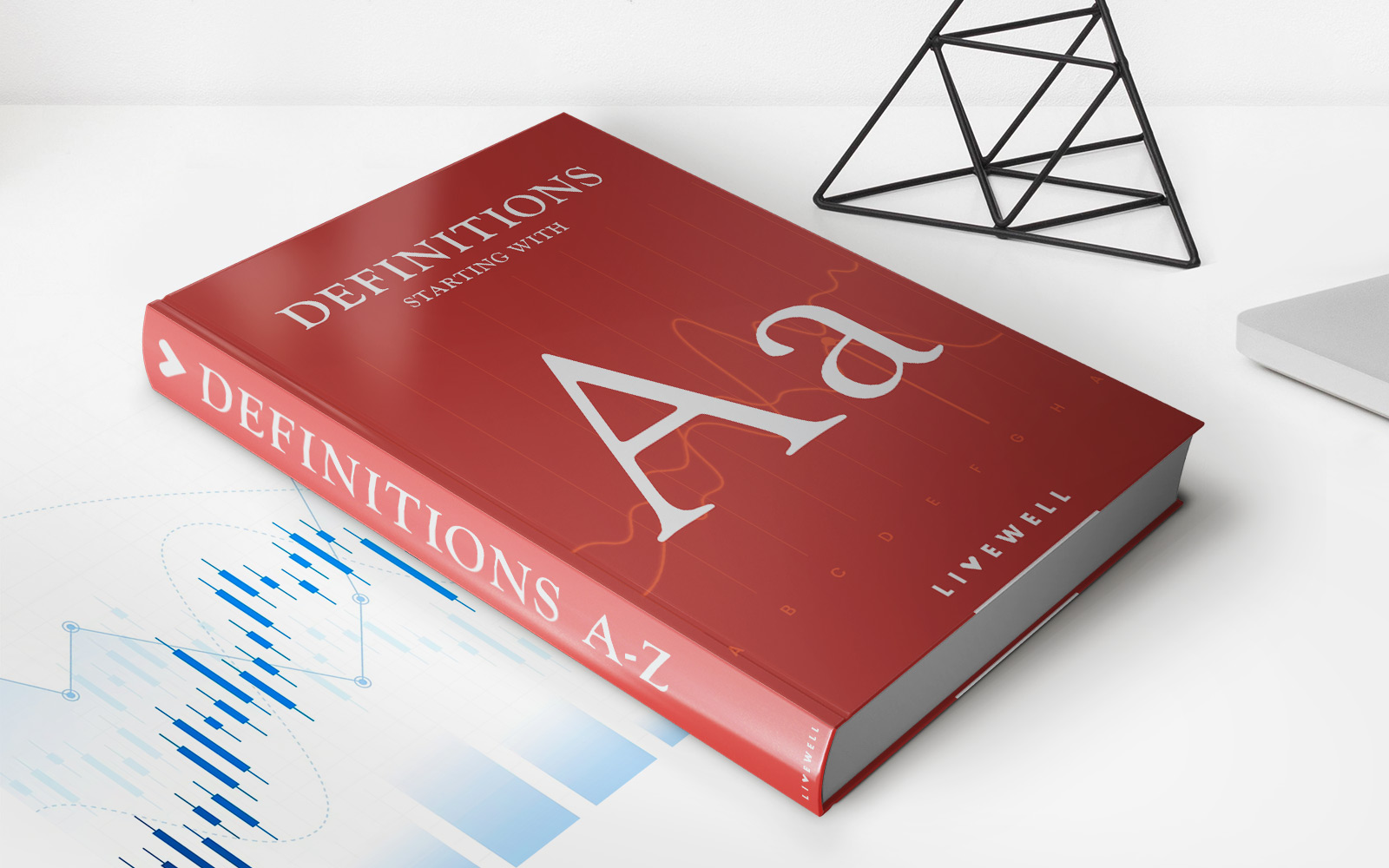Assignment in Insurance Policy | Meaning | Explanation | Types
Table of Contents
- 1 What is Assignment in an Insurance Policy?
- 2 Who can make an assignment?
- 3 What happens to the ownership of the policy upon Assignment?
- 4 Can assignment be changed or cancelled?
- 5 What happens if the assignment dies?
- 6 What is the procedure to make an assignment?
- 7 Is it necessary to Inform the insurer about assignment?
- 8 Can a policy be assigned to a minor person?
- 9 Who pays premium when a policy is assigned?
- 10.1 1. Conditional Assignment
- 10.2 2. Absolute Assignment

What is Assignment in an Insurance Policy?
Assignment means a complete transfer of the ownership of the policy to some other person. Usually assignment is done for the purpose of raising a loan from a bank or a financial institution .

Assignment is governed by Section 38 of the Insurance Act 1938 in India. Assignment can also be done in favour of a close relative when the policyholder wishes to give a gift to that relative. Such an assignment is done for “natural love and affection”. An example, a policyholder may assign his policy to his sister who is handicapped.
Who can make an assignment?
A policyholder who has policy on his own life can assign the policy to another person. However, a person to whom a policy has been assigned can reassign the policy to the policyholder or assign it to any other person. A nominee cannot make an assignment of the policy. Similarly, an assignee cannot make a nomination on the policy which is assigned to him.
What happens to the ownership of the policy upon Assignment?
When a policyholder assign a policy, he loses all control on the policy. It is no longer his property. It is now the assignee’s property whether the policyholder is alive or dead, the assignee alone will get the policy money from the insurance company.
If the assignee dies, then his (assignee’s) legal heirs will be entitled to the policy money.
Can assignment be changed or cancelled?
An assignment cannot be changed or cancelled. The assignee can of course, reassign the policy to the policyholder who assigned it to him. He can also assign the policy to any other person because it is now his property. We can think of a bank reassigning the policy to the policyholder when their loan is repaid.
What happens if the assignment dies?
If the assignee dies, the assignment does not get cancelled. The legal heirs of the assignee become entitled to the policy money. Assignment is a legal transfer of all the interests the policyholder has in the policy to the assignee.
What is the procedure to make an assignment?
Assignment can be made only after issue of the policy bond. The policyholder can either write out the wording on the policy bond (endorsement) or write it on a separate paper and get it stamped. (Stamp value is the same, as the stamp required for the policy — Twenty paise per one thousand sum assured). When assignment is made by an endorsement on the policy bond, there is no need for stamp because the policy is already stamped.
Is it necessary to Inform the insurer about assignment?
Yes, it is necessary to give information about assignment to the insurance company. The insurer will register the assignment in its records and from then on recognize the assignee as the owner of the policy. If someone has made more than one assignment, then the date of the notice will decide which assignment has priority. In the case of reassignment also, notice is necessary.
Can a policy be assigned to a minor person?
Assignment can be made in favour of a minor person. But it would be advisable to appoint a guardian to receive the policy money if it becomes due during the minority of the assignee.
Who pays premium when a policy is assigned?
When a policy is assigned normally, the assignee should pay the premium, because the policy is now his property. In practice, however, premium is paid by the assignor (policyholder) himself. When a bank gives a loan and takes the assignment of a policy a security, it will ask the assignor himself to pay the premium and keep it in force. In the case of an assignment as a gift, the assignor would like to pay the premium because he has gifted the policy.
Types of assignment
Assignment may take two forms:
- Conditional Assignment.
- Absolute Assignment.
1. Conditional Assignment
It would be useful where the policyholder desires the benefit of the policy to go to a near relative in the event of his earlier death. It is usually effected for consideration of natural love and affection. It generally provides for the right to revert the policyholder in the event of the assignee predeceasing the policyholder or the policyholder surviving to the date of maturity.
2. Absolute Assignment
This assignment is generally made for valuable consideration. It has the effect of passing the title in the policy absolutely to the assignee and the policyholder in no way retains any interest in the policy. The absolute assignee can deal with the policy in any manner he likes and may assign or transfer his interest to another person.
Related Posts
- Privacy Policy

What Is the Assignment of Insurance Benefits?

An assignment of insurance benefits shares the ownership interest of an insurance policy with another party.
Hemera Technologies/AbleStock.com/Getty Images
More Articles
- 1. What Is a Life Insurance Assignment?
- 2. Absolute Assignment of Life Insurance Policies
- 3. What Is the Collateral Assignment of a Life Insurance Policy?
Assigning insurance benefits is a legal procedure that gives another party permission to receive payments or benefits directly from your insurance company rather than you receiving the benefits yourself. Depending on the arrangement, you may be able to terminate the assignment at will, or be required to keep the arrangement in place until you meet certain conditions.
Health Insurance
When you require medical care, it's important to have health insurance in place to protect your financial well-being. If your health care provider does not have a direct contract with your insurance company, it may require you to fill out an assignment of benefits form allowing it to bill the insurance company directly for your medical treatments. You remain responsible for any deductibles and co-pays, however, and are ultimately responsible for any medical bills.
Income Loan
Whole life insurance policies with accumulating cash values can act as supplementary retirement income planning investments. When you wish to access the cash value in your policy, you can assign your policy to a bank in exchange for a loan. Typically the bank lends you up to a specified percentage of the policy's cash value, and it becomes the primary beneficiary of the death benefit up to and including the outstanding balance of the loan at your death. The advantage of such an arrangement is that the bank loan is not treated as taxable income, unlike a policy withdrawal, and you repay the bank loan with the tax-free death benefit.
Collateral Loan
If you are self-employed and wish to secure a loan for your business, you may be required by your lenders to purchase life insurance as an additional guarantee. Once the insurance is purchased you complete a assignment of benefits, sharing ownership control with the bank. You must pay the insurance premiums and cannot make any decisions affecting the policy without the written consent of the lender. If and when you pay off your business loan, the assignment is terminated and you regain full control of the policy.
Charitable Contribution
Life insurance can be purchased as a means to finance a charitable gift at death. There are several ways to set this up, one of which involves assigning the benefits to the charity immediately after purchase. The assignment is typically irrevocable, as this requires the charity's consent to make any changes to the policy. The advantage of such an assignment is that your premiums are tax-deductible as a charitable contribution. Upon your death, the charity receives the death benefit directly, without the money passing through your estate.
- Massachusetts Avenue Surgery Center: Assignment of Insurance Benefits
- Feeley and Driscoll, P.C.: Life insurance leads way to charitable contribution
Philippe Lanctot started writing for business trade publications in 1990. He has contributed copy for the "Canadian Insurance Journal" and has been the co-author of text for life insurance company marketing guides. He holds a Bachelor of Science in mathematics from the University of Montreal with a minor in English.
Related Articles
What is a life insurance assignment, absolute assignment of life insurance policies, what is the collateral assignment of a life insurance policy, how do i set up a trust fund with a life insurance policy, how much can i borrow against cash value, is whole-term life insurance with a retirement plan a good idea, how to finance a funeral, can you write off life insurance payments, can life insurance proceeds paid to a beneficiary be forced to pay the deceased's debts, taxation of death benefits paid on a life insurance policy, is life insurance taxed at payout, does life insurance count towards the two million for federal estate tax.
Zacks Research is Reported On:
Zacks Investment Research
is an A+ Rated BBB
Accredited Business.
Copyright © 2024 Zacks Investment Research
At the center of everything we do is a strong commitment to independent research and sharing its profitable discoveries with investors. This dedication to giving investors a trading advantage led to the creation of our proven Zacks Rank stock-rating system. Since 1986 it has nearly tripled the S&P 500 with an average gain of +26% per year. These returns cover a period from 1986-2011 and were examined and attested by Baker Tilly, an independent accounting firm.
Visit performance for information about the performance numbers displayed above.
NYSE and AMEX data is at least 20 minutes delayed. NASDAQ data is at least 15 minutes delayed.

Life Insurance Assignment – What They Are and Why You Need Them
Everything You Need to Know about Absolute vs. Collateral Assignments
Table of Contents
Collateral assignment, how is a collateral assignment used, how to complete a collateral assignment, releasing a collateral assignment, death and collateral assignments, collateral assignments for the uninsurable, absolute assignment, final words.
What is a collateral assignment?
A collateral assignment of life insurance gives lenders the right to collect your policy’s death benefit up to the amount of the outstanding loan balance.
A typical scenario involves taking out a business loan .
The lender may require a life insurance policy as collateral.
The type of life insurance policy used, whether a term, whole life, or universal life doesn’t matter.
The insurance policy will pay off the balance if you die while the loan is outstanding.
Life insurance for SBA loans is required when you borrow from the SBA.
The collateral assignment applies to the entire policy, including any life insurance rider benefits that may be part of the policy.
The process is similar whether you are adding the assignment to an existing policy or are buying new coverage.
There are two parties to a collateral assignment.
- Assignor – Is the owner of the life insurance policy
- Assignee – Is the lender
Life insurance companies have standardized forms used for this purpose.
- The owner completes the form and sends it to the lender for review and signature.
- Once complete, you will send the form to the insurance company.
- The insurance company records the assignment and sends a confirmation to the owner and lender that the assignment is complete.
This may all seem confusing if you haven’t used an assignment before, but the reality is that most life insurers make it pretty easy to complete.
When you pay off your lender, you have the right to have the collateral assignment removed.
The life insurance companies have collateral release forms as well.
- The owner completes the form and sends it to the lender.
- The lender signs off on the release.
- Once complete, the insurance company records the release and sends the discharge letter to all parties.
Once complete, you should re-check with the home office to ensure that your policy released the assignment.
Your agent can help with this.
How do collateral assignments work when you die?
Check out this example:
- Policy Face Amount = $1,000,000
- Beneficiary = Your Spouse
- Original Bank Loan = $200,000
- Outstanding Loan Balance at Death = $100,000
What happens next?
- Your beneficiary will file the death claim with the life insurance company.
- The life insurance company will review the claim and see a collateral assignment attached to your policy.
- The insurer contacts the lender for an updated payoff figure.
- Payoff amounts are sent directly to the lender.
- Your beneficiary receives the balance of the policy death benefit .
For the above example, your lender would receive $100,000, and your beneficiary would receive the remaining $900,000 as intended.
I would like to remind you that you NEVER want to name your lender as the beneficiary, as they would receive the entire proceeds rather than just what was owed.
While lenders may want a life insurance policy as collateral, sometimes it’s difficult to obtain if the insured has substantial health issues .
If you have an existing life insurance policy in effect, it’s possible to use that for the assignment.
Another option that exists in some states is contingent coverage.
Contingent coverage is a one-year policy that you can renew.
The policy will exclude death from the known health issue but provide coverage for new health issues that develop or from accidental deaths .
Many lenders accept this coverage when it’s the only option available.
What is an absolute assignment?
You use absolute assignments when you permanently relinquish all ownership rights to your life insurance policy.
Some examples:
Life Insurance Settlements
With this transaction, you are selling your life insurance policy to a third party.
You may convert a term policy to permanent insurance before it is sold.
Another example may involve admitting seniors to a nursing home.
The nursing home may take over the policy you have.
1035 Exchange
A 1035 exchange is a tax-free transfer of cash value from universal life or whole life policy to another similar policy.
Gifting Life Insurance to Charities
You can use absolute assignments to permanently transfer your policy to your favorite charity.
Irrevocable Life Insurance Trusts (ILIT)
You use absolute assignments to permanently transfer your policy to an ILIT.
An example would be a survivorship policy you and your spouse own that you are transferring to the trust.
Many other potential issues may arise with transfers to an ILIT that are beyond the scope of this article.
Business Cases
If you purchased key person life insurance on an employee, absolute assignments are used to transfer ownership to the employee.
You may have questions about your life insurance assignment and how it works.
The following are general guidelines, as each situation is uniquely different.
Can the collateral assignment change the beneficiary?
No, the collateral assignment does not change the beneficiary.
The life insurance assignment gives the lender the right to receive proceeds equal to their outstanding loan balance.
Can a business be a beneficiary in a collateral assignment of life insurance?
A business can be the beneficiary of a life insurance policy that is collaterally assigned.
Life insurance assignments are common for absolute and collateral assignments.
What is most important is that we understand what is involved with this process.
That’s where we’ll help you make the best decision for your life insurance.
There is never any pressure or obligation with our life insurance service.
Please take a few minutes to submit your quote request today. Thank you.
Recent Articles
- Life Insurance for Police Officers
- How Does Family History Affect Life Insurance
- 40-Year Term Life Insurance
- AICPA Group Term Life Insurance
- How Much Life Insurance Do You Need?
About The Author
Michael Horbal
- Construction Accidents
Practice Areas
Assignment of benefits: what you need to know.
- August 17, 2022
- Steven Schwartzapfel
Insurance can be useful, but dealing with the back-and-forth between insurance companies and contractors, medical specialists, and others can be a time-consuming and ultimately unpleasant experience. You want your medical bills to be paid without having to act as a middleman between your healthcare provider and your insurer.
However, there’s a way you can streamline this process. With an assignment of benefits, you can designate your healthcare provider or any other insurance payout recipient as the go-to party for insurance claims. While this can be convenient, there are certain risks to keep in mind as well.
Below, we’ll explore what an assignment of insurance benefits is (as well as other forms of remediation), how it works, and when you should employ it. For more information, or to learn whether you may have a claim against an insurer, contact Schwartzapfel Lawyers now at 1-516-342-2200 .
What Is an Assignment of Benefits?
An assignment of benefits (AOB) is a legal process through which an insured individual or party signs paperwork that designates another party like a contractor, company, or healthcare provider as their insurance claimant .
Suppose you’re injured in a car accident and need to file a claim with your health insurance company for medical bills and related costs. However, you also need plenty of time to recover. The thought of constantly negotiating between your insurance company, your healthcare provider, and anyone else seems draining and unwelcome.
With an assignment of benefits, you can designate your healthcare provider as your insurance claimant. Then, your healthcare provider can request insurance payouts from your healthcare insurance provider directly.
Through this system, the health insurance provider directly pays your physician or hospital rather than paying you. This means you don’t have to pay your healthcare provider. It’s a streamlined, straightforward way to make sure insurance money gets where it needs to go. It also saves you time and prevents you from having to think about insurance payments unless absolutely necessary.
What Does an Assignment of Benefits Mean?
An AOB means that you designate another party as your insurance claimant. In the above example, that’s your healthcare provider, which could be a physician, hospital, or other organization.
With the assignment of insurance coverage, that healthcare provider can then make a claim for insurance payments directly to your insurance company. The insurance company then pays your healthcare provider directly, and you’re removed as the middleman.
As a bonus, this system sometimes cuts down on your overall costs by eliminating certain service fees. Since there’s only one transaction — the transaction between your healthcare provider and your health insurer — there’s only one set of service fees to contend with. You don’t have to deal with two sets of service fees from first receiving money from your insurance provider, then sending that money to your healthcare provider.
Ultimately, the point of an assignment of benefits is to make things easier for you, your insurer, and anyone else involved in the process.
What Types of Insurance Qualify for an Assignment of Benefits?
Most types of commonly held insurance can work with an assignment of benefits. These insurance types include car insurance, healthcare insurance, homeowners insurance, property insurance, and more.
Note that not all insurance companies allow you to use an assignment of benefits. For an assignment of benefits to work, the potential insurance claimant and the insurance company in question must each sign the paperwork and agree to the arrangement. This prevents fraud (to some extent) and ensures that every party goes into the arrangement with clear expectations.
If your insurance company does not accept assignments of benefits, you’ll have to take care of insurance payments the traditional way. There are many reasons why an insurance company may not accept an assignment of benefits.
To speak with a Schwartzapfel Lawyers expert about this directly, call 1-516-342-2200 for a free consultation today. It will be our privilege to assist you with all your legal questions, needs, and recovery efforts.
Who Uses Assignments of Benefits?
Many providers, services, and contractors use assignments of benefits. It’s often in their interests to accept an assignment of benefits since they can get paid for their work more quickly and make critical decisions without having to consult the insurance policyholder first.
Imagine a circumstance in which a homeowner wants a contractor to add a new room to their property. The contractor knows that the scale of the project could increase or shrink depending on the specifics of the job, the weather, and other factors.
If the homeowner uses an assignment of benefits to give the contractor rights to make insurance claims for the project, that contractor can then:
- Bill the insurer directly for their work. This is beneficial since it ensures that the contractor’s employees get paid promptly and they can purchase the supplies they need.
- Make important decisions to ensure that the project completes on time. For example, a contract can authorize another insurance claim for extra supplies without consulting with the homeowner beforehand, saving time and potentially money in the process.
Practically any company or organization that receives payments from insurance companies may choose to take advantage of an assignment of benefits with you. Example companies and providers include:
- Ambulance services
- Drug and biological companies
- Lab diagnostic services
- Hospitals and medical centers like clinics
- Certified medical professionals such as nurse anesthetists, nurse midwives, clinical psychologists, and others
- Ambulatory surgical center services
- Permanent repair and improvement contractors like carpenters, plumbers, roofers, restoration companies, and others
- Auto repair shops and mechanic organizations
Advantages of Using an Assignment of Benefits
An assignment of benefits can be an advantageous contract to employ, especially if you believe that you’ll need to pay a contractor, healthcare provider, and/or other organization via insurance payouts regularly for the near future.
These benefits include but are not limited to:
- Save time for yourself. Again, imagine a circumstance in which you are hospitalized and have to pay your healthcare provider through your health insurance payouts. If you use an assignment of benefits, you don’t have to make the payments personally or oversee the insurance payouts. Instead, you can focus on resting and recovering.
- Possibly save yourself money in the long run. As noted above, an assignment of benefits can help you circumvent some service fees by limiting the number of transactions or money transfers required to ensure everyone is paid on time.
- Increased peace of mind. Many people don’t like having to constantly think about insurance payouts, contacting their insurance company, or negotiating between insurers and contractors/providers. With an assignment of benefits, you can let your insurance company and a contractor or provider work things out between them, though this can lead to applications later down the road.
Because of these benefits, many recovering individuals, car accident victims, homeowners, and others utilize AOB agreements from time to time.
Risks of Using an Assignment of Benefits
Worth mentioning, too, is that an assignment of benefits does carry certain risks you should be aware of before presenting this contract to your insurance company or a contractor or provider. Remember, an assignment of benefits is a legally binding contract unless it is otherwise dissolved (which is technically possible).
The risks of using an assignment of benefits include:
- You give billing control to your healthcare provider, contractor, or another party. This allows them to bill your insurance company for charges that you might not find necessary. For example, a home improvement contractor might bill a homeowner’s insurance company for an unnecessary material or improvement. The homeowner only finds out after the fact and after all the money has been paid, resulting in a higher premium for their insurance policy or more fees than they expected.
- You allow a contractor or service provider to sue your insurance company if the insurer does not want to pay for a certain service or bill. This can happen if the insurance company and contractor or service provider disagree on one or another billable item. Then, you may be dragged into litigation or arbitration you did not agree to in the first place.
- You may lose track of what your insurance company pays for various services . As such, you could be surprised if your health insurance or other insurance premiums and deductibles increase suddenly.
Given these disadvantages, it’s still wise to keep track of insurance payments even if you choose to use an assignment of benefits. For example, you might request that your insurance company keep you up to date on all billable items a contractor or service provider charges for the duration of your treatment or project.
For more on this and related topic, call Schwartzapfel Lawyers now at 1-516-342-2200 .
How To Make Sure an Assignment of Benefits Is Safe
Even though AOBs do carry potential disadvantages, there are ways to make sure that your chosen contract is safe and legally airtight. First, it’s generally a wise idea to contact knowledgeable legal representatives so they can look over your paperwork and ensure that any given assignment of benefits doesn’t contain any loopholes that could be exploited by a service provider or contractor.
The right lawyer can also make sure that an assignment of benefits is legally binding for your insurance provider. To make sure an assignment of benefits is safe, you should perform the following steps:
- Always check for reviews and references before hiring a contractor or service provider, especially if you plan to use an AOB ahead of time. For example, you should stay away if a contractor has a reputation for abusing insurance claims.
- Always get several estimates for work, repairs, or bills. Then, you can compare the estimated bills and see whether one contractor or service provider is likely to be honest about their charges.
- Get all estimates, payment schedules, and project schedules in writing so you can refer back to them later on.
- Don’t let a service provider or contractor pressure you into hiring them for any reason . If they seem overly excited about getting started, they could be trying to rush things along or get you to sign an AOB so that they can start issuing charges to your insurance company.
- Read your assignment of benefits contract fully. Make sure that there aren’t any legal loopholes that a contractor or service provider can take advantage of. An experienced lawyer can help you draft and sign a beneficial AOB contract.
Can You Sue a Party for Abusing an Assignment of Benefits?
Sometimes. If you believe your assignment of benefits is being abused by a contractor or service provider, you may be able to sue them for breaching your contract or even AOB fraud. However, successfully suing for insurance fraud of any kind is often difficult.
Also, you should remember that a contractor or service provider can sue your insurance company if the insurance carrier decides not to pay them. For example, if your insurer decides that a service provider is engaging in billing scams and no longer wishes to make payouts, this could put you in legal hot water.
If you’re not sure whether you have grounds for a lawsuit, contact Schwartzapfel Lawyers today at 1-516-342-2200 . At no charge, we’ll examine the details of your case and provide you with a consultation. Don’t wait. Call now!
Assignment of Benefits FAQs
Which states allow assignments of benefits.
Every state allows you to offer an assignment of benefits to a contractor and/or insurance company. That means, whether you live in New York, Florida, Arizona, California, or some other state, you can rest assured that AOBs are viable tools to streamline the insurance payout process.
Can You Revoke an Assignment of Benefits?
Yes. There may come a time when you need to revoke an assignment of benefits. This may be because you no longer want the provider or contractor to have control over your insurance claims, or because you want to switch providers/contractors.
To revoke an assignment of benefits agreement, you must notify the assignee (i.e., the new insurance claimant). A legally solid assignment of benefits contract should also include terms and rules for this decision. Once more, it’s usually a wise idea to have an experienced lawyer look over an assignment of benefits contract to make sure you don’t miss these by accident.
Contact Schwartzapfel Lawyers Today
An assignment of benefits is an invaluable tool when you need to streamline the insurance claims process. For example, you can designate your healthcare provider as your primary claimant with an assignment of benefits, allowing them to charge your insurance company directly for healthcare costs.
However, there are also risks associated with an assignment of benefits. If you believe a contractor or healthcare provider is charging your insurance company unfairly, you may need legal representatives. Schwartzapfel Lawyers can help.
As knowledgeable New York attorneys who are well-versed in New York insurance law, we’re ready to assist with any and all litigation needs. For a free case evaluation and consultation, contact Schwartzapfel Lawyers today at 1-516-342-2200 !
Schwartzapfel Lawyers, P.C. | Fighting For You™™
What Is an Insurance Claim? | Experian
What is assignment of benefits, and how does it impact insurers? | Insurance Business Mag
Florida Insurance Ruling Sets Precedent for Assignment of Benefits | Law.com
Related Posts
In absentia: definition, meaning & examples.
Imagine you’ve been working a grueling (12)-hour shift on a construction site. In the hustle and bustle, you get a
Traumatic Amputation: A Legal Overview
Traumatic amputation is one of the most tragic injuries a person can experience in the workplace or in an accident
Construction Injuries And Legal Rights
Construction can be a dangerous job, which is why employers are required to provide certain protections to their construction crews.
We'll Fight For You
Schwartzapfel® lawyers has a 99% client satisfaction rate, quick links.
- News & Events
- Verdicts & Settlements
- Video Gallery
- Wrongful Death
- Vehicle Accidents
- Slip & Fall
- Medical Malpractice
- Workers' Compensation
- Personal Injuries
- Product Liability
- Garden City
- Practical Law
Assignment of insurance policies and claims
Practical law uk practice note w-031-6021 (approx. 19 pages), get full access to this document with a free trial.
Try free and see for yourself how Practical Law resources can improve productivity, efficiency and response times.
About Practical Law
This document is from Thomson Reuters Practical Law, the legal know-how that goes beyond primary law and traditional legal research to give lawyers a better starting point. We provide standard documents, checklists, legal updates, how-to guides, and more.
650+ full-time experienced lawyer editors globally create and maintain timely, reliable and accurate resources across all major practice areas.
83% of customers are highly satisfied with Practical Law and would recommend to a colleague.
81% of customers agree that Practical Law saves them time.
- Construction and engineering
- Construction insurance
- Credit, terrorism and political risks
- Cyber insurance
- Directors and officers
- Disputes, investigations and enforcement
- Insurance in commercial transactions
- Insurance intermediaries
- Legal expenses
- Making and dealing with claims
- Reinsurance
- Security, risk management and business continuity

Assignment of Life Insurance Policy
The person who assigns the policy, i.e. transfers the rights, is called the Assignor and the one to whom the policy has been assigned, i.e. the person to whom the policy rights have been transferred is called the Assignee.

Assignment of a Life Insurance Policy simply means transfer of rights from one person to another. The policyholder can transfer the rights of his insurance policy to another for various reasons and this process is called Assignment.
The person who assigns the policy, i.e. transfers the rights, is called the Assignor and the one to whom the policy has been assigned, i.e. the person to whom the policy rights have been transferred is called the Assignee. Once the rights have been transferred to the Assignee, the rights of the Assignor stands cancelled and the Assignee becomes the owner of the policy.

here are 2 types of Assignment:
- Absolute Assignment – This means complete Transfer of Rights from the Assignor to the Assignee, without any further conditions applicable.
- Conditional Assignment – This means that the Transfer of Rights will happen from the Assignor to the Assignee subject to certain conditions. If the conditions are fulfilled then only the Policy will get transferred from the Assignor to the Assignee.
Let’s take an example:
Rahul owns 2 Life Insurance policies of value Rs 2 lakhs and Rs 5 lakhs respectively. He would like to gift one policy of Rs 2 lakhs to his best friend Ajay. In that case, he would like to absolutely assign the policy in his name such that the death or maturity proceeds are directly paid to him. Thus, after the assignment, Ajay becomes the absolute owner of the policy. If he wishes, he may again transfer it to someone else for any other reason. This type of Assignment is called Absolute Assignment.

Now, Rahul needed to take a loan for Rs 5 lakhs. So, he thought of doing so against the other policy that he owned for Rs 5 lakhs. To take a loan from ABC bank, he needed to conditionally assign the policy to that Bank and then the bank would be able to pay out the loan money to him. If Rahul failed to repay the loan, then the bank would surrender the policy and get their money back.
Once Rahul’s loan is completely repaid, then the policy would again come back to him. In case, Rahul died before completely repaying the loan, then also the bank can surrender the policy to get their money back. This type of Assignment is called Conditional Assignment.

Sachin Telawane is a Content Manager and writes on various aspects of the Insurance industry. His enlightening insights on the insurance industry has guided the readers to make informed decisions in the course of purchasing insurance plans.

- 1800 102 2355
- Download the APP
- 1800 102 2355 [9:30AM-6:30PM]
- Branch Locator
- Customer Portal Login
- Advisor Portal Login

What is Assignment and Nomination in Life Insurance?
‘Assignment’ and ‘Nomination’ are two most common terms used in a life insurance policy document. Let us understand the importance of these two terms in-detail.
By Future Generali. Updated On Oct 06, 2022

Your life insurance policy is a contract between you (insured) and the insurance company (insurer). The contract is filled with jargon. To the extent possible, we must understand all the terms mentioned in the policy bond (certificate). ‘Assignment’ and ‘Nomination’ are two most common terms used in the insurance world.
For instance, in the event that you plan to apply for a home loan, your home loan provider will surely use these terms. Hence, it is best to be sure and understand exactly what the terms mean before you make a decision to buy the policy.
What is assignment in life insurance?
A life insurance policy can be assigned when rights of one person are transferred to another. The rights to your insurance policy can be transferred to someone else for various reasons. The process is known as assignment.
An “assignor” (policyholder) is the person who assigns the insurance policy. An “assignee” is the person to whom the policy rights have been transferred, i.e. the person to whom the policy has been assigned.
In the event rights are transferred from an Assignor to an Assignee, the rights of the policyholder are canceled, and the Assignee becomes the owner of the insurance policy.
People often assign their life insurance policies to banks. A bank becomes the policy owner in this case, while the original policyholder continues to be the life assured whose death may be claimed by either the bank or the policy owner.
Types of Assignment
There are two ways to assign an insurance policy. They are as follows:
1. Absolute Assignment
During this process, the rights of the assignor (policyholder) will be completely transferred to the assignee (person to whom the policy rights have been transferred). It is not subject to any conditions.
As an example, Mr. Rajiv Tripathi owns a Rs 1 Crore life insurance policy. Mr. Tripathi wants to gift his wife this policy. Specifically, he wants to make “absolute assignment” of the policy in his wife's name, so that the death benefit (or maturity proceeds) can be paid directly to her. After the absolute assignment has been made, Mrs. Tripathi will own this policy, and she will be able to transfer it to someone else again.
2. Conditional Assignment
As part of this type of assignment, certain conditions must be met before the transfer of rights occurs from the Assignor to the Assignee. The Policy will only be transferred to the Assignee if all conditions are met.
For instance, a term insurance policy of Rs 50 Lakh is owned by Mr. Dinesh Pujari. Mr. Pujari is applying for a home loan of Rs 50 Lakh. For the loan, the banker asked him to assign the term policy in their name. To acquire a home loan, Mr. Pujari can assign the insurance policy to the home loan company. In the event of Mr. Pujari’s death (during the loan tenure), the bank can collect the death benefit and get their money back from the insurance company.
Mr. Pujari can get back his term insurance policy if he repays the entire amount of his home loan. As soon as the loan is repaid, the policy will be transferred to Mr. Pujari.
In the event that the insurer receives a death benefit that exceeds the outstanding loan balance, the bank will be paid from the difference between the death benefit and the loan and the balance will be paid directly to the nominee. In the above example, the remaining amount (if any) will be paid to Mr. Pujari’s beneficiaries (legal heirs/nominee).
Key Points to know Note About Assignment
In regards to the assignment, the following points should be noted:
- A policy assignment transfers/changes only the ownership, not the risk associated with it. The person assured thus becomes the insured.
- The assignment may lead to cancellation of the nomination in the policy only when it is done in favour of the insurance company due to a policy loan.
- Assignment for all insurance plans except for the pension plan and the Married Women's Property Act (MWP), can be done.
- A policy contract endorsement is required to effect the assignment.
What is nomination in life insurance?
Upon the death of the life assured, the nominee/ beneficiary (generally a close relative) receives the benefits. Policyholders appoint nominees to receive benefits. Under the Insurance Act, 1938, Section 39 governs the nomination process.
Types of Nominees
In a life insurance policy, the policyholder names someone who will receive the benefits in the event of the life assured's death. Here are a few types of nominees:
1. Beneficial Nominees
In accordance with the law, the beneficiary of the claimed benefits will be any immediate family member nominated by the policyholder (like a spouse, children, or parents). Beneficiary nominees are limited to immediate family members of the beneficiary.
2. Minor Nominees
It is common for individuals to name their children as beneficiaries of their life insurance policies. Minor nominees (under the age of 18) are not allowed to handle claim amounts. Hence, the policyholder needs to designate a custodian or appointee. Payments are made to the appointee until the minor reaches the age of 18.
3. Non-family Nominees
Nominees can include distant relatives or even friends as beneficiaries of a life insurance policy.
4. Changing Nominees
It is okay for policyholders to change their nominees as often as they wish, but the latest nominee should take priority over all previous ones.
Key Points to Note About Nomination
In regards to the nomination, the following points should be noted:
- In order to nominate, the policyholder and life assured must be the same.
- In the case of a different policyholder and life assured, the claim benefits will be paid to the policyholder.
- Nominations cannot be changed or modified.
- The policy can have more than one nominee.
- As part of successive nominations, if the life assured appoints person “A” as the first person to receive benefits. Now, in the event of the life assured’s death after person “A” dies, the claim benefits will be given to person “B”. The benefits will be available to Nominee “C” if Nominee “A” and Nominee “B” have passed away.
What is the difference between nomination and assignment?
Let's talk about the differences between assignment and nomination.
Nomination and Assignment serve different purposes. The nomination protects the interests of the insured as well as an insurer in offering claim benefits under the life insurance policy. On the other hand, assignment protects the interests of an assignee in availing the monetary benefits under the policy. The policyholder should be aware of both of them before buying life insurance.
Connect with our trusted financial advisors right away!
Fill in below details to get a call back
One of our associate will connect with you soon.
Latest Articles

Life Insurance 4 min What is Investment? A Complete guide to start your investment journey.
By Future Generali. Dec 06, 2023

Life Insurance 5 min Endowment Policy: Returns, Benefits & Requirement
By Future Generali. Sep 06, 2023

Life Insurance 4 min Understanding Sum Assured: Significance & Calculation
By Future Generali. Jul 28, 2023
Couldn't find what you are looking for? TRY SEARCH
ARN No.: Comp-April-2022_534.

Easily Organize, Claim and Renew Insurance!
Know About Car Insurance
Compare Car Insurance
Know about Car Insurance
- Third Party Car Insurance
- Comprehensive Car Insurance
- Standalone Own Damage Car Insurance
- Zero Depreciation Car Insurance
- Taxi Car Insurance
- Used Car Insurance
Insurance Knowledge
- Car Insurance Companies
- Car Insurance Premium Calculator
- Car Insurance Claim Process
- Buy, Compare or Renew Car Insurance
- Cashless Garage
- Car Insurance Blogs
Read Our Blogs
Find Advisor
Know About Bike Insurance
Compare Bike Insurance
Know about Bike Insurance
- Third Party Bike Insurance
- Comprehensive Bike Insurance
- Zero Depreciation Bike Insurance
- Add On Cover
- Stand Alone Own Damage
- Bike Insurance Companies
- Bike Insurance Claim Process
- Bike Insurance Premium Calculator
- Buy, Compare & Renew Bike Insurance
- Bike Insurance Blogs
Know About Health Insurance
Compare Health Insurance
Know about Health Insurance
- Health Insurance Plans
- Family Health Insurance Plans
- Senior Citizen Health Insurance
- Critical Illness Insurance
- Mediclaim Policy
- Coronavirus Health Insurance
- Health Insurance Tax Benefit
- Health Insurance Companies
- Health Insurance Claim Process
- Buy, Compare or Renew Health Insurance
- Health Insurance Blogs
Know About Life Insurance
Compare Life Insurance
Know about Life Insurance
- Term Insurance Policy
- Money Back Policy
- Endowment Policy
Life Insurance Companies
- Life Insurance Premium Calculator
- Compare & Buy Life Insurance plan
- Human Life Value Calculator
- Life Insurance Riders
- Life Insurance Blogs
Raise A Claim
Assignment vs Nomination in Life Insurance

Table of Content:
- Difference between nomination and assignment
- What is nomination in life insurance?
1. Beneficial Nominee
- 2. Minor Nominee
3. Non-Family Nominee
4. multiple nominees.
- 4. Changing Nominee
- 6.Successive Nominee
- Important things to know about nominations
- What is an assignment in life insurance?
- Types of assignment in life insurance
Important things to know about assignments
- Differences between nominations and assignments:
Difference between Nomination and Assignment
In life insurance products, two terms assignment and nomination are frequently used. While not many may understand them, it is imperative to know the meaning and the difference between assignment and nomination before purchasing any insurance plan.
The primary difference is about policy ownership. While in nomination, the policy owner remains unchanged. However, in an assignment, the policy ownership is transferred from one person to another. The nominee (as in nomination) gets the benefit after the death of the life assured but the assignee (as in assignment) gets the benefits when the life assured transfers the rights and ownership of his/her policy to the assignee. These are some of the basic and common differences between nomination and assignment.
Let us learn some more about assignment and nomination, and what role they play in insurance.
What is Nomination in life insurance?
Nomination is one of the most essential processes of the life insurance policy. The policyholder has to make any one family member his/her nominee. The nominee is considered eligible to claim the benefits of the life insurance policy if the insured individual dies. In this way, the insurance company ensures that the family of the insured does not have to suffer financial problems even after an earning member of the family passes away. Hence, the policyholder should choose the nominee of his/her insurance policy carefully.
Types of nominees in life insurance
The policyholder gets the choice of choosing one among the five types of nominees. Let’s understand them in detail. Here are the following five types of nominees in life insurance:
IRDA has introduced a new term ‘beneficiary nominee’ instead of the nominee. It means that the policyholder has the right to make anyone his/her nominee. The nominee can be the policyholder’s parent/ guardian, child, or companion. If the policyholder has already chosen his/her nominee, then no dispute will arise in getting the claim.
2. Minor Nominee
The policyholder can make his/her minor child the nominee of his/her life insurance policy to secure the child’s future in his/her absence. But if the insured individual dies untimely, the amount of the claim will be payable to the legal custodian or the appointee of the child. The child’s custodian hands over that money to the child when he/she turns 18 years old.
It is also possible for the policyholder to choose a non-family member as his/her nominee. However, this is generally not recommended.
Two or more two persons can be chosen by the policyholder under the multiple nominees of the insurance policy. In this case, the policyholder divides the share of the total amount between the two nominees. If the policyholder doesn’t divide the amount while filling the nomination form, then, the amount of the claim is divided equally between the nominees by the insurer.
5. Changing Nominee
Under this type of nominee, the policyholder is able to choose his/her nominee during the life insurance policy tenure.
6. Successive Nominee
Under many circumstances, people prefer choosing more than 1 nominee, in successive nominations, one can choose up to three nominees. After the death of the insured, the 1st nominee will receive the death benefit. In case the 1st nominee is also dead, the death benefit will go to the 2nd nominee and so on.
Important Things to Know About Nominations
There are a few quintessential things about the nominations that every policyholder must keep in mind. The important things that should be known about nominations are given below:
- The life assured and the policyholder should be the same in the life insurance policy for the process of nomination. If they are two different persons, then, the claim benefits will be taken by the policyholder of the insurance plan.
- The nominee has no right to request any kind of change in the insurance policy.
What is an Assignment in Life Insurance?
Under Section 38 of the Insurance Act, 1938, there is a provision for assignment in life insurance. The policyholder transfers the rights of his/her policyholder to another person. The person who transfers the insurance rights is called the assignor and the person to whom the policy rights are transferred is called the assignee. In this way, the assignee becomes the owner of the insurance policy.
Generally, the people choose banks for assigning their policy rights. The bank becomes the policyholder but the life assured of the insurance policy is not changed. The benefits of the claim are received by the bank (policyholder).
Types of Assignment in Life Insurance
There are two types of assignment in life insurance i.e. Absolute Assignment and Conditional Assignment.
1. Absolute Assignment
In the absolute assignment, the rights of the life insurance policy are given to another person (assignee) without any terms and conditions. Generally, this type of assignment is done by the policyholders to show love for someone or to repay the bank loan.
2. Conditional Assignment
In a conditional assignment, the policyholder (assignor) transfers the rights of the life insurance policy to another person (assignee) under certain terms and conditions. If the terms and conditions are fulfilled, only then, the ownership of the policy will be transferred.
Check out the essential things about the assignment that you must not forget to keep in mind:
- Only the owner of the policy is changed in the assignment. The life assured will remain the same.
- The policyholder of each insurance plan can transfer the rights of the insurance policy to the assignee. Only the pension plan and the insurance plans that are bought under the Married Women’s Property Act (MWP) are excluded.
- The nomination of the insurance policy is cancelled if the policyholder gives the rights of his/her insurance policy to the insurance company for paying the insurance company’s loan.
Differences between Nominations and Assignments
The table given below gives you a quick insight into the several differences between nominations and assignments.
It is very important for the policyholder to know about assignment and nomination. This is because the nomination and assignment have their own benefits that the policyholder can enjoy without any ado. Therefore, a piece of complete information has been shared with the help of this article. It is recommended to the policyholder to choose the right life insurance policy that can serve their family members even in their absence.
Related post:
- LIC Plans for 10 Years with Returns & Alternatives
1. What is the meaning of endorsement in the assignment?
The policyholder has to sign the endorsement while transferring the rights of his/her insurance policy to the assignee. The sign of one witness is also required. Thereafter, the policyholder (assignor) has to mention precisely the reasons for transferring the rights of the insurance policy. The terms and conditions are also mentioned in the form (if any). Furthermore, the details of the assignee are also included in the form.
2. What are the liabilities and rights of the assignee?
The liabilities and rights of the assignee are different on the basis of the types of assignment. In the absolute assignment, the right of policy ownership, responsibility to pay future insurance premiums, and the right of getting maturity benefits are transferred to the assignee. But in the conditional assignment, these rights and liabilities are determined as per the terms and conditions.
3. When does the insurance company cancel the nomination in the assignment process?
When the assignor assigns the rights of the insurance policy to the assignee, then the nomination is cancelled by the insurance company. The nomination is not cancelled if the assignment is temporary. In that case, the rights of the insurance policy will be given back to the insured when he/she will pay the loan.
4. Who can become the assignee of my insurance policy?
The assignee of the insurance policy can be a person or a financial institution. There should be an insurable interest between you and the person/financial institution. The assignee is either temporary or permanent. In some cases, the insured chooses the financial institution or insurance company as the assignee on some terms and conditions. But after some time, when the loan is paid, the insured will become the owner of the insurance policy again.
5. When does the insurance company accept the assignment?
If the insurance company finds that there is an insurable interest between the assignor and assignee, then the assignment is accepted. The insurance company makes sure that the assignment is not against the public interest and also not for trading purposes. The assignment should be in the interest of the policyholder only.
This article is issued in the general public interest and is for educational purposes only. The blogs should not be used as a substitute for competent expert advice from a licensed professional to best suit your needs. Insurance is a subject matter of solicitation. For more details on policy terms, conditions, exclusions, limitations, please refer/read policy brochure before concluding sale.
Found this post informational?
Browse Turtlemint Blogs to read interesting posts related to Health Insurance , Car Insurance , Bike Insurance , and Life Insurance . You can visit Turtlemint to Buy Insurance Online.
Get Best Insurance Quotes For
Health Insurance
Life Insurance
Car Insurance
Bike Insurance
Related Blogs
Top Life Insurance Companies in India (Updated List 2024)
Table of Contents Introduction to Life Insurance What Does Life Insurance Cover? Common Types of Life Insurance…
Ankita Sejpal
Feb 05, 2024
What is Mobile Insurance? Compare Mobile Phone Insurance…
Mobiles have become the part and parcel of the modern generation. It is no longer just a means to talk with people, mobiles today…
Dec 28, 2023
Difference Between Annuity & Life Insurance
Life is full of surprises. Understanding and planning before any unforeseen events give you the benefit of financial stability….
Rupanjali Mitra Basu
Dec 27, 2023
Employees’ State Insurance Scheme – All you need to…
Table of Contents What is the ESIS? What is the Employees’ State Insurance Corporation? Employees’ State Insurance…
YSR Pension Kanuka Eligibility Criteria, Benefits &…
Table of Contents What is YSR Pension Kanuka YSR Pension eligibility criteria Features of YSR Pension…
Dec 21, 2023
Deferred Annuity: Meaning, Benefits, Types & How It…
Financial planning is important in all phases of life. But planning for retirement is vital to secure social status and…
Jul 29, 2022
Is Suicide Covered Under Life Insurance Policy
Life insurances are your safety protocols. They are to support the family after their family member’s demise financially. But…
Jul 19, 2022
Difference Between Participating & Non Participating…
Table of Contents Participating and non participating Life Insurance Plans Participating Life Insurance Plan Working…

Policy Cancellation & Refund
Policy cancellation and refund of the premium shall be as per the terms & conditions of the policy. The refunds are processed by the Insurance Company directly. You are requested to contact the toll free number of your Insurance Company or refer the respective section of your Policy terms and conditions. You can also call us at our toll free number 1800-266-0101 or write a mail to us at [email protected] . We shall be available to guide/assist you.
Confused about insurance? Let’s simplify it together!
Submit your details for expert guidance and hassle-free assistance.

IRDAI certified expert advice

Application assistance

Claim support
Get free advice
Now sit back and relax!
Our advisor will reach out to you shortly!

- Life Insurance
- Assignment Vs Nomination In Life Insurance Know The Difference
- Understanding Nomination and its Types
- Understanding Assignment and its Types
- Key Differences Between Nomination and Assignment

Buy Policy in just 2 mins

2 lakh + Happy Customers

Free Comparison
Customized Term Insurance Plan for you.
Get upto 10% Online Discount*

Select Your City
Popular Cities
Delhi Gurgaon Noida Bengaluru Chennai Ahmedabad Hyderabad Kolkata Mumbai
Select Your Annual Income Your life insurance cover limit will be calculated based on your income. You may be asked to provide income proof at the time of purchase.
15 Lacs+ P.A. 10-15 Lacs P.A. 7-10 Lacs P.A. 5-7 Lacs P.A. 3-5 Lacs P.A. Upto 3 Lacs P.A.
Enter Your Name
Mobile Number
By proceeding you are accepting our T&C and privacy policy
Confused? No Worries, We Are Here To Help!
Health offer, invest offer.

Assignment vs Nomination in Life Insurance
In life insurance plans, Nomination and Assignment are the two important terms that are frequently used. Acknowledging these terms helps the policyholder to extract the benefits available under the life insurance policy without making a hole in his/her pocket.
Policyholders should know the exact difference between the two before making any decision to purchase the policy. It is required that individuals should read terms and conditions carefully so that one doesn't make any mistake and use the policy in the right way.
What is the Nomination?
The nomination is a right given to the policyholder that authorizes him/her to appoint a person (usually a close family member) to receive the benefits in the event of the death of the life assured. The person who is appointed by the policyholder to receive the benefit is called a Nominee. The nomination is governed under Section 39 of the Insurance Act, 1938.
Types of Nominees
Under the life insurance policy , the policyholder nominates a person who is entitled to receive the benefits in case something happens to the life assured. Some of the different types of nominees given below:
Beneficial Nominees
As per the law, any immediate family member (like spouse, children or parents) nominated by the policyholder is entitled to receive the monetary benefits and will be the beneficial owner of the claim benefits. It is important to note that only immediate family members can be termed as Beneficial Nominees.
Minor Nominees
Many individuals appoint their children as beneficiaries of their life insurance policies. Minor nominees (who are less than 18 years of age) are not considered eligible to handle claim amounts. For this, the policyholder needs to assign an appointee or custodian. The claim amount is paid to the appointee until the minor turns 18.
Non-family Nominees
These types of nominees can be distant relatives or even friends as the beneficiary of the life insurance policy.
Changing Nominees
Policyholders can change their nominees as many times as they want, but the latest nominee should supersede all previous ones.
Life Insurance Companies
Compare and buy the most suitable Life Insurance Plan from the below-mentioned IRDAI-approved Life Insurance companies.
- Term Insurance
LIC Of India
Hdfc life insurance, icici prudential life insurance, sbi life insurance, max life insurance, tata aia life insurance, pnb metlife india insurance, bajaj allianz life insurance, bandhan life insurance, kotak mahindra life insurance, canara hsbc life insurance, bharti axa life insurance, aviva life insurance, indiafirst life insurance, exide life insurance, edelweiss tokio life insurance, ageas federal life insurance, future generali life insurance, birla sun life insurance, reliance life insurance, pramerica life insurance limited, shri ram life insurance, sahara india life insurance.
Know More About Life Insurance Companies
LIC Term Insurance
Hdfc term insurance, icici term insurance, sbi life term insurance, max life term insurance, tata aia term insurance, pnb metlife term insurance, bajaj allianz term insurance, bandhan life term insurance, kotak life term insurance, canara hsbc obc term insurance, bharti axa term insurance, aviva term insurance, indiafirst term insurance, exide life term insurance, edelweiss tokio term life insurance, ageas federal term insurance, future generali term insurance, birla sun life term insurance, reliance term insurance, pramerica term insurance.
Know More About Term Insurance Companies
Key Points to Know Regarding Nomination
- The nomination is possible only when the policyholder and life assured are the same. In case, the policyholder and life assured are different, the claim benefits will be availed by the policyholder only.
- The nominee cannot ask for changes/modifications to the policy.
- There can be more than one nominee in the policy.
- In the successive nomination, if the life assured appoints person A to be the first person to receive the claim benefits in case of assured's death and person A is no more, then the claim benefits will be passed to person B. However, if Nominee A and Nominee B have passed away, later Nominee C will be appointed to avail the benefits and so on.
What is Assignment?
Assignment of the policy refers to the transfer of rights, title, and policy ownership from the policyholder to another person or entity. The person involved in assigning/transferring the policy is called assignor, and the person/institution to which it is assigned is called the assignee. The assignment is regulated under Section 38 of the Insurance Act, 1938.
The assignment is categorized under two different types, i.e. Absolute Assignment and Conditional Assignment.
Absolute Assignment
Under the absolute assignment, all rights, title and interest are transferred by the assignor to an assignee without reversion to the assignor (in case of any event). It shifts the ownership of the insurance policy to other parties without any terms and conditions. This assignment is usually done for money consideration such as raising a loan, out of love or affection towards family members.
Conditional Assignment
It means that the transfer of rights will happen from the Assignor to the Assignee subject to certain terms and conditions. If the conditions are fulfilled, only then the policy will be transferred.
Key Points to know Regarding Assignment
- Under the assignment, only the ownership is transferred/changed, not the risk of the policy. This means the life assured is/will be considered as the person insured.
- The assignment may lead to cancellation of the nomination in the policy only when it is done in favour of the insurance company due to a policy loan.
- The assignment applies to all the insurance plans except Pensions Plan and Married Women's Property Act (MWP).
- The assignment is effected through an endorsement on the policy contract.
Difference Between Assignment and Nomination
Let's discuss how assignment differs from nomination.
Nomination and Assignment serve different purposes. The nomination protects the interests of the insured as well as an insurer in offering claim benefits under the life insurance policy. On the other hand, assignment protects the interests of an assignee in availing the monetary benefits under the policy. The policyholder should be aware of both of them before buying life insurance.
Life Insurance Articles

Top 5 Benefits of Life Insurance Jan, 2024

GST On Life Insurance Aug, 2023

Importance of Life Insurance Aug, 2023

Factors That Affect Life Insurance Premiums July, 2023

Life Insurance For Cancer Patients July, 2023

Difference Between ULIP and Traditional Plans July, 2023

Grace Period In Life Insurance Policy July, 2023

Life Insurance With Maturity Benefits July, 2023

Difference Between Life Insurance and Health July, 2023

Benefits of Life Insurance July, 2023

Advantages and Disadvantages Of Life July, 2023

Life Insurance Premium June, 2023

Cash Value Of Life Insurance June, 2023

Free Look Period in Life Insurance June, 2023

Ladli Laxmi Yojana Policy May, 2023

Group Term Life Insurance March, 2023

Bima Sugam Life Insurance December, 2022

Whole Life Insurance Policy September, 2022

Sabse Pehle Life Insurance April, 2022

Life Insurance FAQs September, 2021

Pandemic Challenges in Life Insurance May, 2021

Term Life vs. Traditional Life Insurance- Which Is Better? January, 2021

How to Get Duplicate LIC Policy Bond? October, 2020

How To Check ICICI Prudential Life Insurance Policy Status? May, 2020

What Are Late Payment Charges For LIC Premiums? September, 2020


How To Check SBI Life Insurance Policy Status? April, 2020

Life Insurance Claim Process & Requirements July, 2020

SBI Life Insurance Premium Payment April, 2020

Guaranteed Income Plan June, 2020

ICICI Prudential Life Insurance Login and Registration April, 2020

ICICI Prudential Premium Payment May, 2020

Revival of Lapsed LIC Policy - Steps to Revive It Online December, 2019
See More Life Insurance Articles

Top 10 Indian Life Insurance Companies Jan, 2024

How To Download LIC Premium Receipt Online? December, 2019

Top 10 Pension Plans in India December, 2019

How To Check HDFC Life Policy Status? November, 2019

Sukanya Samriddhi Yojana Vs LIC Kanyadan Policy September, 2019

Best Single Premium Insurance Plans in India December, 2019

How To Update HDFC Life Insurance Policy Online? November, 2019

Max Life Premium Payment November, 2019
What our customers have to say.

May 10, 2024
I was looking for a term plan to secure my family& 039;s future. So I contacted PolicyX and they helped me compare various term plans. So I choose Bharti Axa term plan.
Akshay Khaana
Mr. Suresh from PolicyX helped me get my Bharti AXA term plan approved after it was initially rejected.
I wanted to buy life insurance policy. So I contacted Bharti Axa Life Insurance. They helped me compare and choose the plan that is suitable for me.
I am a little bit confused about my Edelweiss Tokio life insurance premiums rates, So I decided to visit Policyx.com. An. An agent named Vishal helped to solve my all problems without any hassl...
Govind kumar
I have purchased Bharti Axa life insurance from policyx.com overall, the experience was good and satisfactory.
Biswajit Barman
April 20, 2024
Review: HDFC Life Insurance Term Policy HDFC Life Insurance Term Policy stands out as a beacon of financial security and peace of mind in the ever-changing landscape of life insurance offering...
Shreya Chaudhary
April 8, 2024
I am very grateful to the insurance experts of PolicyX and Mr. Ankur, who kindly helped me settle the claim of Aegon Life Insurance. Thanks again, I& 039;ll always remember this favor.
Prerna Negi
I bought a Bajaj Allianz Life Insurance through PolicyX, and I must say the level of communication and assistance I have received has been truly impressive.

Reviewed By: Naval Goel
Naval Goel is the CEO & founder of PolicyX.com. Naval has an expertise in the insurance sector and has professional experience of more than a decade in the Industry and has worked in companies like AIG, New York doing valuation of insurance subsidiaries. He is also an Associate Member of the Indian Institute of Insurance, Pune. He has been authorized by IRDAI to act as a Principal Officer of PolicyX.com Insurance Web Aggregator.
Talk to our Trusted Insurance Advisors for Best Plans

Search Anything
Most Searched:
Financial Tips, Guides & Know-Hows
Home > Finance > What Is Collateral Assignment Of Life Insurance

What Is Collateral Assignment Of Life Insurance
Published: November 22, 2023
Discover the benefits of collateral assignment of life insurance and how it can impact your finance. Gain valuable insights into this powerful financial strategy.
(Many of the links in this article redirect to a specific reviewed product. Your purchase of these products through affiliate links helps to generate commission for LiveWell, at no extra cost. Learn more )
Table of Contents
Introduction, definition of collateral assignment of life insurance, how collateral assignment works, reasons for using collateral assignment of life insurance, benefits and drawbacks of collateral assignment of life insurance, comparison with other forms of collateral, examples of collateral assignment of life insurance, important considerations before using collateral assignment.
When it comes to securing a loan, financial institutions often require borrowers to provide collateral as a form of security. Collateral helps mitigate the lender’s risk by providing an asset that can be seized and sold in the event of default. While real estate and vehicles are common forms of collateral, there is another valuable asset that can be used – life insurance.
In the world of finance, the collateral assignment of life insurance has gained popularity as a means of securing loans. This unique strategy allows borrowers to use the cash value or death benefit of their life insurance policy as collateral. By assigning the policy to the lender, the borrower can provide an additional layer of security while retaining ownership and control of the policy.
In this article, we will delve into the concept of collateral assignment of life insurance, understanding how it works, the reasons for using it, the benefits and drawbacks, as well as important considerations to keep in mind.
Additionally, we will compare collateral assignment with other forms of collateral and provide real-life examples to illustrate its practical application in various scenarios.
Before we proceed, it’s important to note that the details of collateral assignment can vary depending on the jurisdiction and terms of the insurance policy. It’s crucial for borrowers and policyholders to consult with their financial advisors and insurance providers to ensure they fully understand the implications and requirements of utilizing collateral assignment of life insurance.
Collateral assignment of life insurance refers to the process of using a life insurance policy as collateral for a loan or other financial obligation. When a borrower assigns their life insurance policy as collateral, they transfer a portion or all of their rights and benefits from the policy to the lender. This arrangement provides the lender with a form of security in case the borrower defaults on the loan.
Under a collateral assignment, the policyholder retains ownership of the policy and continues to pay the premiums. The assignee, typically the lender, receives the right to the policy’s cash value or death benefit as a means of recovering the outstanding debt in the event of default.
To create a collateral assignment, a written agreement known as a collateral assignment agreement is usually required. This agreement outlines the specifics of the assignment, including the amount of coverage assigned, the rights of the assignee, and the conditions for release of the collateral upon repayment of the loan.
It’s important to note that the collateral assignment of life insurance does not cancel or terminate the policy. The policy remains in force, and the beneficiary designation typically remains unchanged. In the event of the policyholder’s death, the death benefit is paid out as specified in the original policy contract.
It’s also worth mentioning that there are two types of collateral assignments for life insurance: outright assignment and conditional assignment. An outright assignment transfers all the policy rights and benefits to the assignee for the duration of the loan, while a conditional assignment only grants the assignee access to the policy’s value or death benefit if certain conditions, such as default on the loan, occur.
Now that we have a clear understanding of collateral assignment of life insurance, let’s explore how this process works in practice.
The process of collateral assignment of life insurance involves several steps and considerations. Here’s how it generally works:
- Evaluation of Loan Eligibility: The borrower applies for a loan and undergoes the usual evaluation process. The lender assesses the borrower’s creditworthiness, income, and other factors to determine loan eligibility.
- Identification of Collateral Options: If the lender requires collateral to secure the loan, the borrower explores different options. Life insurance policies with cash value or death benefits can be considered as potential collateral.
- Insurance Policy Examination: The borrower reviews their life insurance policy to determine the available cash value and death benefit. This information helps both the borrower and the lender assess the suitability of collateral assignment.
- Collateral Assignment Agreement: Once both parties agree to move forward with collateral assignment, a collateral assignment agreement is drafted. This agreement outlines the details of the assignment, including the amount of coverage assigned, the rights and obligations of the parties involved, and the conditions for release of the collateral.
- Notification to the Insurance Company: The borrower notifies their insurance company about the collateral assignment. The insurance company updates their records to reflect the assignee’s rights to the policy’s cash value or death benefit, as stipulated in the collateral assignment agreement.
- Ongoing Premium Payments: The borrower continues to pay the premiums on the life insurance policy to keep it active. Failure to do so could lead to policy termination and potentially affect the collateral assignment.
- Loan Repayment: The borrower is responsible for repaying the loan according to the terms and conditions set by the lender. If the borrower defaults on the loan, the lender has the right to access the assigned cash value or death benefit to recover the outstanding debt.
- Release of Collateral: Once the loan is fully repaid, the lender releases the collateral back to the borrower. At this point, the borrower regains full control and ownership of the life insurance policy.
It’s important to note that the process may vary slightly depending on the specific requirements of the lender and the insurance company. Additionally, the terms of the collateral assignment agreement will play a crucial role in determining the rights and obligations of both parties involved.
Now that we understand how collateral assignment works, let’s explore the reasons why individuals opt for this strategy.
Collateral assignment of life insurance can be a valuable tool for borrowers and lenders alike. Here are some reasons why individuals choose to use this strategy:
- Access to Financing: Collateral assignment allows individuals who may not have traditional forms of collateral, such as real estate or valuable assets, to access financing. By utilizing the cash value or death benefit of their life insurance policy, borrowers can secure loans for various purposes, such as business expansion, education expenses, or medical bills.
- Lower Interest Rates: Lenders may offer lower interest rates for loans secured by collateral. The added security provided by the life insurance policy reduces the lender’s risk exposure, resulting in more favorable terms for the borrower.
- Easier Loan Approval: Collateral assignment can make loan approval easier for borrowers with less-than-perfect credit or limited income. The presence of collateral can mitigate some of the perceived risks for lenders, increasing the chances of loan approval.
- Retention of Policy Ownership and Control: Unlike other forms of collateral, such as selling an asset outright, collateral assignment of life insurance allows borrowers to retain ownership and control over their policy. They can continue to name beneficiaries, make changes to the policy, and access the policy’s cash value as needed, as long as the loan obligations are being met.
- Preservation of Policy Benefits: Assigning collateral does not cancel the life insurance policy. The original policy benefits, such as death benefit payouts, remain intact for the beneficiaries. This ensures that loved ones are financially protected in case of the policyholder’s untimely passing.
- Flexibility and Versatility: Collateral assignment can be used with various types of life insurance policies, including both permanent (whole life, universal life) and term life insurance. This provides borrowers with the flexibility to choose a policy that aligns with their financial goals and needs.
It’s important for borrowers to carefully evaluate their financial situation and assess whether collateral assignment is the right option for their needs. Taking into account the benefits and drawbacks of collateral assignment, as well as comparing it with alternative forms of collateral, can help borrowers make informed decisions.
Next, let’s explore the advantages and disadvantages of collateral assignment of life insurance.
Collateral assignment of life insurance offers several benefits and drawbacks for borrowers and lenders. Understanding these advantages and disadvantages can help individuals make informed decisions about utilizing this strategy. Let’s explore them:
- Improved Loan Terms: By offering collateral in the form of a life insurance policy, borrowers can often secure loans with better interest rates and terms compared to unsecured loans.
- Access to Higher Loan Amounts: Collateral assignment can help borrowers access higher loan amounts based on the value of their life insurance policy. This can be particularly beneficial for larger expenses or investments.
- Retain Policy Ownership: Collateral assignment allows borrowers to retain ownership and control of their life insurance policy. They can continue to make changes to the policy and access its benefits, such as cash value, while meeting loan obligations.
- Preservation of Policy Benefits: The life insurance policy’s original benefits, such as death benefit payouts, remain intact for the beneficiaries. This ensures that loved ones are financially protected, even if the policy is assigned as collateral.
- Flexibility and Versatility: Collateral assignment can be used with different types of life insurance policies, providing borrowers with flexibility in choosing a policy that suits their needs and financial goals.
- Reduced Cash Value and Benefit: Assigning collateral may restrict access to the policy’s cash value and limit the death benefit available to the policyholder during the loan term.
- Policy Termination Risk: If the borrower fails to meet the loan obligations or defaults, the policy may be terminated, leading to loss of coverage and potential financial consequences.
- Potential Loan Default Consequences: In the event of loan default, the lender can access the assigned cash value or death benefit, potentially impacting the financial protection for the borrower’s beneficiaries.
- Complexity and Administrative Requirements: Collateral assignment involves paperwork and administrative tasks, including drafting and executing a collateral assignment agreement, notifying the insurance company, and ensuring ongoing premium payments.
- Limitations on Policy Modifications: Depending on the terms of the collateral assignment agreement, borrowers may have restrictions on making changes to the policy, such as reducing coverage or surrendering the policy.
It’s essential for borrowers to carefully consider these benefits and drawbacks in the context of their specific financial situation and goals. Consulting with financial advisors and insurance professionals can provide valuable guidance to make an informed decision.
Next, let’s compare collateral assignment of life insurance with other forms of collateral to better understand its advantages and limitations.
Collateral assignment of life insurance offers distinct advantages and considerations compared to other forms of collateral. Let’s compare it to some common forms of collateral:
Real Estate:
Real estate is a traditional form of collateral widely used in lending. While real estate offers the potential for long-term appreciation, it can be financially burdensome due to property taxes, maintenance costs, and market fluctuations. Moreover, using real estate as collateral may involve complex legal processes and lengthy evaluation periods. In contrast, collateral assignment of life insurance provides a quicker and more straightforward solution, especially for those without real estate assets.
Vehicles are another common form of collateral. While they are easily identifiable and possess monetary value, vehicles depreciate over time. Additionally, vehicles require ongoing maintenance and are subject to wear and tear. Unlike vehicles, a life insurance policy’s value is not dependent on physical assets, making it an attractive option for those who do not own valuable vehicles or wish to preserve their vehicle’s daily utility.
Securities:
Securities, such as stocks or bonds, can be used as collateral. However, they are subject to market volatility, and their value can fluctuate considerably. Additionally, using securities as collateral may require transferring ownership or creating a margin account, which can involve additional fees and restrictions. Collateral assignment of life insurance offers stability, as the policy’s cash value remains relatively secure, regardless of market conditions.
Savings Accounts:
Savings accounts or certificates of deposit (CDs) can be used as collateral, providing a low-risk option for lenders. However, tying up savings in collateral may limit accessibility to those funds and reduce financial flexibility. Collateral assignment of life insurance can offer an alternative solution, allowing borrowers to access funds while keeping their savings intact.
It’s important to note that the suitability of collateral assignment versus other forms of collateral may depend on an individual’s unique circumstances and preferences. Assessing the advantages, drawbacks, and requirements of different collateral options is crucial in determining the best choice for a particular situation.
Next, let’s explore some practical examples of collateral assignment of life insurance to illustrate its application in real-life scenarios.
Collateral assignment of life insurance can be used in various real-life situations to secure loans and meet financial obligations. Here are a few examples:
1. Small Business Loan: A small business owner requires capital to expand their operations. Instead of offering personal assets or seeking a business loan without collateral, they choose to assign the cash value of their life insurance policy as collateral. This allows them to access favorable loan terms and maintain ownership of their life insurance policy while growing their business.
2. Education Financing: A parent wants to fund their child’s college education but does not have sufficient savings or assets to provide as collateral. By assigning the death benefit of their life insurance policy as collateral, the parent can secure a loan to cover tuition and other educational expenses. This approach allows them to borrow at lower interest rates and preserve their other assets for future needs.
3. Medical Expenses: A borrower faces unexpected medical expenses that are not fully covered by insurance. They assign the cash value of their life insurance policy as collateral to secure a loan and cover the medical bills. This enables them to get the necessary treatment without depleting their savings or incurring high-interest debt.
4. Estate Planning: An individual wants to ensure their loved ones are adequately provided for in case of their untimely passing. They assign the death benefit of their life insurance policy as collateral to secure a loan and establish an estate plan. This allows them to create a tax-efficient strategy while providing immediate financial support to their beneficiaries.
5. Debt Consolidation: A borrower has multiple outstanding debts with high-interest rates. They decide to assign the cash value of their life insurance policy as collateral to secure a consolidation loan. This allows them to combine their debts into a single loan with more favorable terms, such as lower interest rates and manageable monthly payments.
These examples demonstrate the versatility and practicality of collateral assignment of life insurance in various financial scenarios. It provides a viable option for individuals and businesses to access funds, manage expenses, and meet financial goals while leveraging the financial protection provided by their life insurance policies.
Before pursuing collateral assignment, it’s crucial to thoroughly understand the terms and conditions of the loan and collateral assignment agreement. Seeking guidance from financial advisors and insurance professionals can help borrowers make informed decisions and ensure the best outcome for their specific circumstances.
In the next section, we will explore important considerations that individuals should keep in mind before using collateral assignment of life insurance.
Before deciding to use collateral assignment of life insurance, it is essential to consider the following factors:
Loan Terms and Repayment:
Thoroughly review the terms and conditions of the loan, including the interest rate, repayment period, and any associated fees. Determine if the loan terms align with your financial capabilities and goals. It’s crucial to have a clear understanding of the repayment schedule and ensure it is manageable within your budget.
Impact on Policy Benefits:
Understand how assigning collateral will affect your life insurance policy. Evaluate the potential impact on the policy’s cash value, death benefit, and other policy features. Determine if the reduction in benefits is acceptable in relation to the loan amount and the financial protection provided to your beneficiaries.
Insurance Policy Review:
Review your life insurance policy in detail to understand its provisions, restrictions, and rights. Familiarize yourself with the policy’s cash value accumulation, surrender charges, and any other contractual obligations. Ensure that the policy is eligible for collateral assignment and that you comply with all requirements set by the insurance company.
Risk of Policy Termination:
Be aware that failing to meet loan obligations can result in policy termination, potentially leaving you without coverage and potential financial consequences. Consider your ability to meet the loan payments and have a contingency plan in case of unforeseen circumstances to mitigate this risk.
Professional Guidance:
Seek advice from financial advisors and insurance professionals who can provide insight into the pros and cons of collateral assignment of life insurance. They can help you evaluate your specific needs, assess the impact on your financial situation, and explore alternative options that may better suit your circumstances.
Legal and Tax Implications:
Understand the legal and tax implications associated with collateral assignment based on your jurisdiction. Consult with legal and tax professionals to ensure compliance with applicable laws and regulations. Be aware of any potential tax consequences, such as potential taxable events or changes in the insurance policy’s tax status.
By carefully considering these factors, you can make an informed decision about whether collateral assignment of life insurance is the right strategy for your financial needs. It’s important to conduct thorough research, weigh the benefits and drawbacks, and consult with professionals to ensure you are making the best choice for your individual circumstances.
In the concluding section, we will summarize the key points and emphasize the significance of due diligence when utilizing collateral assignment of life insurance.
Collateral assignment of life insurance can be a valuable tool for borrowers and lenders seeking to secure loans and meet financial obligations. By leveraging the cash value or death benefit of a life insurance policy, individuals can access financing with favorable terms and retain ownership and control over their policy.
However, utilizing collateral assignment requires careful consideration and due diligence. It is essential to assess the benefits and drawbacks, compare it with alternative forms of collateral, and evaluate its impact on policy benefits and repayment obligations. Seeking guidance from financial advisors and insurance professionals is crucial to ensure informed decision-making and a thorough understanding of the process and implications.
Understanding the terms and conditions of the loan, the collateral assignment agreement, and the policy itself is paramount. Regular reviews of the insurance policy and ongoing premium payments are necessary to maintain coverage and prevent policy termination. Additionally, individuals should stay aware of legal, tax, and compliance requirements associated with collateral assignment based on their jurisdiction.
By responsibly utilizing collateral assignment, individuals can access financing for various purposes while protecting their loved ones through the preservation of policy benefits. This strategy offers flexibility and versatility, allowing borrowers to meet their financial goals without sacrificing ownership and control of their life insurance policies.
Ultimately, the decision to use collateral assignment of life insurance should align with individual financial goals and risk tolerance. With careful planning, proper guidance, and a thorough understanding of the process, collateral assignment can be a valuable tool in managing finances and achieving financial objectives.
It’s important to always consult with professionals and conduct thorough research before proceeding with collateral assignment of life insurance to ensure the best outcome for your specific circumstances.
How Is Collateral Assignment Used In A Life Insurance Contract?
How Is A Collateral Assignment Used In A Life Insurance Contract?
20 Quick Tips To Saving Your Way To A Million Dollars
Our Review on The Credit One Credit Card
What Is Transactional Funding
MSCI KLD 400 Social Index Definition
Latest articles.
Navigating Crypto Frontiers: Understanding Market Capitalization as the North Star
Written By:
Financial Literacy Matters: Here’s How to Boost Yours
Unlocking Potential: How In-Person Tutoring Can Help Your Child Thrive
Understanding XRP’s Role in the Future of Money Transfers
Navigating Post-Accident Challenges with Automobile Accident Lawyers
Related post.

By: • Finance

Please accept our Privacy Policy.
We uses cookies to improve your experience and to show you personalized ads. Please review our privacy policy by clicking here .
- https://livewell.com/finance/what-is-collateral-assignment-of-life-insurance/
- Submit Article for Publication
Nomination and Assignment under Insurance Contracts
Published by siri k reddy on 30/01/2021 30/01/2021, introduction:.
The term assignment itself means you assign something to someone else. In term life insurance, the assignment of the policy describes the action of assigning legal rights as well as policy ownership to someone else. The person who assigns the policy is known as an Assignor and the person who has been assigned the policy is known as an Assignee.
Nomination under the insurance contract refers to nominate someone on your behalf in order to collect the benefit in your absence. A person who is trustworthy can be nominated upon the death of a person. The trustworthy person could be from the dead person’s family or close friends. Then that person is the nominee of the policy.
However in most of the cases, people choose their family member as the nominee of the policy but as per the insurance act of 1938, under section 39, the nomination of a particular person is not restricted to a family only. Any person who is considered as trustworthy and any person who will not misuse the policy are considered to be an ideal nominee of that particular policy.
Types of Assignment
There are two types of assignment of policies:
- Absolute assignment: under this particular type of assignment, the assignor is bound to transfer the ownership, title, legal interests and all the rights of the policy to the assignee. This type of transfer of the policy does not include the terms and conditions on the part of the assignee. The exact purpose of the absolute assignment is to repay the debts or to show affection to loved ones.
- Collateral assignment: collateral assignment refers to that particular assignment in which the policyholder assigns the policy on terms and conditions, and the assignee is restricted to avail the benefits of all the terms and conditions. The main purpose of the collateral assignment is to repay loans and liabilities.
Types of Nomination
There are three types of nominations, such as:
- Beneficiary nominee: in this particular nomination a particular person can be made beneficiary to the immediate family members like parents, children, and spouse. The beneficiary will be entitled to receive all the benefits of the policy legally only in case of unfavourable conditions.
- Minor nominee: since it is considered that a minor cannot deal with financial conditions, the guardian of that particular minor has to give the details of their selves only when the policyholder chooses his/her child as the nominee.
- Non-family nominee: a non-family member is that person who does not have blood relation with the policyholder such as close friends, a distant relative, a neighbour, etc. under section 39 of the insurance act of 1938; any trustworthy person can be a policy nominee.
Nomination and Assignment in Life Insurance Plans
As it is already known that insurance is a legal contract between the insurance company who is also called the insurer and the policyholder. An assignee is a person to whom the rights have been transverse to. An example of an absolute assignment is as follows: Mr Bharath owns a life insurance policy of 1 crore and he wants to gift this particular policy to his wife as ‘absolute assignment’ to her name. Once this absolute assignment is made to his wife’s name, she will be the owner of the policy. She also has the right to transfer this policy to someone else.
An example of a conditional assignment is as follows: Ms Supriya owns a term insurance policy of 900,000. She wants a home loan of the same amount. Hence her banker asked her to assign the term policy in their name in order to get the loan. If Supriya meets an untimely death the banker is entitled to enjoy their money. An assignment deed or deed of assignment [DOA] is that deed through which rights can be transferred from one person to another.

Sections and Policies
SECTION 38- ASSIGNMENT AND TRANSFER OF INSURANCE POLICIES
The provisions under section 38 of the Insurance Law Act, 2015. The provisions of this particular section are as follows:
- This policy allows itself to be transferred with or without consideration.
- An assignment has a high chance of being affected by an endorsement upon the policy or by a separate instrument to the insurer.
- The instruments should reflect the assignment and the reasons for the transfer.
- An authorized agent or the transferor should sign the assignment.
- The transferor of the assignment should not be operative against an insurer until prior notice is issued
- The authority has the right to specify the fees that is paid for the transfer
- The insurer is also expected to give a written acknowledgement of receipt of the notice. Such notice acts as evidence for the future.
- The notices shall be delivered only at one place where the policy is being served in order to avoid confusions. This arrangement is made as the insurer is involved in managing more than one business place.
- The insurer has the right to accept or deny acting upon any transfer or endorsement only if it is not bonafide or not in the public interest.
- Before denying the endorsement, the insurer should make a note of the reasons for the same.
SECTION 39- NOMINATION BY POLICYHOLDER
The provisions of this particular section are as follows:
- The policyholder can nominate a person to whom money secured by the policy shall be paid during the death.
- When in case of a minor, the policyholder can appoint any person to receive the money in the event of policyholder’s death during the minority of the nominee.
- Nomination can be made at any time before the maturity of the policy.
- The nomination can be incorporated or endorsed to the insurer.
- The provisions of section 39 are not applicable to any life insurance policy to which section 6 of the Married Women’s Property Act, 1874 applies.
- If the nominee dies before the policyholder, the money is payable to the legal representatives or the holder of succession certificate.
SECTION 45- Policy shall not be called in question on the ground of misstatement after three years
Provisions of this section are as follow:
- Any policy of life insurance shall not be called in question after the expiry of three years from the date of issuance of the policy, the date of commencement of risk, the date of revival, the date rider coming to the policy.
- Silence is not considered to be fraud unless it depends on the circumstances of the case.
- The insurer can call for age proof at any time only if he is entitled.
- No insurer can reject a life insurance policy on the grounds of fraud if the beneficiary can prove that the fraud was true to the best of his knowledge.
Difference between Nomination and Assignment
Assignment of policies- impact on existing nomination.
- According to section 39(4) of the insurance act, 938, the assignment of an insurance policy automatically cancels the nomination.
- Here are the few circumstances under which the assignment does not automatically cancel nomination :
When the policy loan is taken from the life insurer who issues the policy, the policy has to be assigned in favour of the life insurer. Under such circumstances, assignments in favour of the life insurer do not automatically cancel the nomination.
On the other hand, where the policy is assigned by a debtor to creditor acts as collateral security for the loan taken by the policyholder from the assignee.
The nomination and assignments have their own uses and benefits as a separate topic under the insurance contracts. I have gained in-depth knowledge of what exactly is nomination and assignment along with minute differences between them. The differences between them have helped me gain much more understanding of the topic. Nomination protects the interests of the insured and the insurer. Whereas the assignment strives to protect the interests of the assignee in availing all the benefits.
References:
- INSURANCE LAWS IN INDIA- VARDHAMAN MAHAVEER, pg. 32. 54.
- RAJIV JAIN: INSURANCE LAW AND PRACTICE, pg. 44
- https://m.economictimes.com/nomination-and-assignment/articleshow/3320189.cms
- https://accountlearning.com/difference-nomination-assignment/
- https://accountlearning.com/assignment-in-insurance-policy-meaning-explanation-types/
- https://life.futuregenerali.in/life-insurance-made-simple/life-insurance/change-nominee-in-term-insurance
Share this:
Leave a reply cancel reply.

Your email address will not be published. Required fields are marked *
Save my name, email, and website in this browser for the next time I comment.
Related Posts

Common Law Principles
Utmost good faith under english insurance law.
Importance of “utmost” good faith is not to be ignored as it gives the doctrine a pillar of necessity to be followed in insurance contracts.

Case Law Analysis
Tukeshwari devi vs royal sundaram alliance insurance company ltd & ors.
The deceased Shashi Kumar Mahato was killed in an accident by an unnamed Omni van which was driven by the negligent driving.

Insurance Law
Hospital management and medical insurance laws.
Health is a part of the State List with each state retaining sole jurisdiction over the formulation of policies in this regard.
To join our WhatsApp community
Shop for Car Insurance
Other Insurance Products
Types of mortgages
Calculators
Find & Compare Credit Cards
Cards with Rewards
Cards for a Purpose
Cards for Building Credit
Credit Card Reviews
Understanding Credit & Score
Student Loans
Paying for College
Personal Finance for College Students
Life Events
What Is Collateral Assignment of Life Insurance?
Quality Verified
Updated: December 14, 2023
- How It Works
- Overview of Application Process
- Pros and Cons
- Impact on Beneficiaries
- Alternatives
Related Content
Advertising & Editorial Disclosure
Collateral assignment of life insurance is an arrangement where a policyholder uses the face value of their life insurance policy, which can be a term or permanent life insurance policy, as collateral to secure a loan. If the policyholder dies before the loan is paid off, the lender is prioritized to receive a portion of the death benefit equivalent to the outstanding loan balance. The remaining benefit then goes to the policy's beneficiaries.
- Collateral assignment involves using a life insurance policy as security for a loan , where the lender has a claim on the death benefit if the borrower defaults or passes away before repaying the loan.
- The lender receives priority over the death benefit , which means they are paid first from the policy's payout before any beneficiaries if the loan remains unpaid.
- Various life insurance policies, including term, whole and universal, can be used for collateral assignment , depending on the insurance company's policies and the policy's value.
- If a life insurance policy lapses or is canceled during a collateral assignment, it can breach the loan agreement , potentially resulting in immediate loan repayment demands.
- After the loan is fully repaid, the policyholder must formally release the collateral assignment to restore the policy to its original status and ensure beneficiaries receive the full death benefit.
How Collateral Assignment of Life Insurance Works
The collateral assignment allows you to use your life insurance policy as security for a loan. The process involves legally designating your policy as collateral, which means if you pass away before fully repaying the loan, the lender can claim the death benefit to cover the remaining balance. You start by choosing either a term policy or whole life insurance and then complete a collateral assignment agreement. This agreement is legally binding and sets the terms for the lender to access the death benefit .
For your beneficiaries, this arrangement means the death benefit they receive could be reduced. If you die with an outstanding loan balance, the lender is paid first from the policy's proceeds. Any remaining amount goes to your beneficiaries only after the loan is settled.
For example, a policyholder with a $500,000 policy was assigned as collateral for a $200,000 loan. If the policyholder dies before settling the loan, the lender will receive $200,000 from the policy's death benefit. Meanwhile, the remaining $300,000 gets disbursed to the policy's beneficiaries.
Applying for Collateral Assignment
Applying for collateral assignment is a process moderated by your life insurance company designed to secure loans using your life insurance policy as collateral. It involves a series of steps:
Obtain a Collateral Assignment Form
Request a collateral assignment form from your life insurance provider. This form is crucial for designating the lender as a beneficiary for the loan amount. Ensure you obtain the correct form, as forms vary based on policy type and insurer.
Fill Out the Form Correctly
Complete the form with accurate details, including policy number, loan amount and lender information. Pay close attention to all sections to avoid errors that could delay or invalidate the assignment. Incomplete or incorrect information can lead to processing delays or rejection.
Signed by Both Policyholder and Lender
Ensure both the policyholder and lender sign the form, confirming the agreement. This dual signature legally binds both parties to the terms of the collateral assignment. Any discrepancy in signatures may question the form's validity.
Submit Completed Form
Submit the signed form back to the insurance company for processing. Consider using a traceable delivery method for submission to confirm receipt. Delays in submission can impact the timeline of the loan approval process.
Await Approval or Rejection From Insurance Company
Wait for the insurer to review and approve or reject the collateral assignment. The insurer may request additional information or clarification, which can extend the approval timeline.
Receive a Letter of Acknowledgment
You and your lender will receive a letter of acknowledgment from the insurer if your collateral assignment application is approved.
Obtaining Required Documentation
The required documentation for collateral assignment of life insurance is straightforward. Typically, you'll need to provide two main types of documents:
- Collateral Assignment Form: This form is critical because it officially transfers a portion of your life insurance policy benefits to the lender as collateral. It demonstrates to the lender that you have taken the requisite steps to secure your loan against your life insurance policy.
- Original Life Insurance Policy and Proof of Loan: Lenders may require your original life insurance policy to ensure it is valid and enforceable. Proof of the loan agreement or obligation, such as a mortgage note or other loan document, is also commonly required. This establishes the legitimacy of your loan and substantiates the collateral assignment.
Pros and Cons of Collateral Assignment
Utilizing a life insurance policy for collateral assignment can offer a range of benefits and potential drawbacks. This method allows you to secure loans and is often safer than using physical assets as collateral. However, you should also note the inherent risks, primarily that the lender retains the first right to your policy’s death benefit upon your death.
Impact of Collateral Assignment on Beneficiaries
While the collateral assignment of life insurance has its benefits, it’s important to remember that it can impact the amount your beneficiaries receive. If you pass away with an outstanding balance on your loan:
Your Lender Will Be Paid First
In the collateral assignment arrangement, the lender is designated as the primary beneficiary for the outstanding loan amount. This means if you pass away before fully repaying the loan, the lender is entitled to receive payment from the death benefit first. The amount collected by the lender is limited to the remaining loan balance.
Any Remaining Death Benefit Will Be Disbursed to Your Beneficiaries
After the lender's claim is satisfied, the remaining death benefit is disbursed to your policy’s designated beneficiaries. The amount they receive depends on the loan balance at the time of your death. If the loan balance is substantial, your beneficiaries will receive significantly less than the policy's full death benefit.
Alternatives to Collateral Assignment
Alternatives to collateral assignment include personal loans , home equity loans , or surrendering the life insurance policy for its cash value. None of these options require using life insurance as collateral. Each option offers different benefits and risks compared to using life insurance as collateral.
These questions covers various topics related to collateral assignments, including the requirements, implications for beneficiaries and what happens under various scenarios.
These related sections offer additional insights into concepts and alternatives connected to collateral assignments and life insurance:
Using Collateral for a Personal Loan — This link explains how to use various types of collateral for securing a personal loan, providing a broader context to the specific use of life insurance as collateral.
Term vs. Permanent Life Insurance — This resource compares term and permanent life insurance, helping to understand which types of policies can be used for collateral assignments.
Permanent Life Insurance — This page details permanent life insurance, a type commonly used in collateral assignments due to its cash value component.
Life Insurance Calculator — This page lets you calculate the appropriate amount of life insurance coverage needed, which is crucial when considering using a policy for collateral.
About Nathan Paulus

Nathan Paulus is the Head of Content Marketing at MoneyGeek, with nearly 10 years of experience researching and creating content related to personal finance and financial literacy.
Paulus has a bachelor's degree in English from the University of St. Thomas, Houston. He enjoys helping people from all walks of life build stronger financial foundations.
Interested in training for your team? Click here to learn more
Assignment of Insurance Benefits Contracts: Resolving AOB Claims and Defending AOB Lawsuits
Aob's scope, invoking the appraisal remedy, enforcing conditions to payment, handling multiple assignments.
Recording of a 90-minute CLE video webinar with Q&A
Conducted on Thursday, January 21, 2021
Recorded event now available
This CLE course will guide insurance practitioners to an enhanced understanding of the use and abuse of assignment of benefits (AOB) whereby a third party, such as a contractor or physician, steps into the insured's shoes to negotiate claims with, and to receive payments and benefits directly from, the insurer. The panel will discuss the importance of any contractual limitations on AOBs, how AOBs affect the adjustment and settlement of losses, whether the assignee might be an unlicensed public adjuster, conflicts and competing interests AOBs can create, how AOBs can create "Catch-22" scenarios for insurers, and best practices for investigating and countering suspicious claims.
Description
AOB is standard practice in insurance: an agreement that transfers the insurance claims rights or benefits of the policy to a third party. An AOB gives the third party authority to file a claim, make repair decisions , and collect insurance payments without the policyholder's involvement.
AOBs have been used with life and health insurance policies for many years. Now, AOBs are commonly used in homeowners' insurance claims by restoration companies and contractors. AOBs can help navigate the claims process but can lead to unintended consequences for insurers and policyholders .
Savvy counsel must understand the nuances of AOBs and their impact on claims , along with the evolving approaches of public adjusters, contractors, and lawyers in the first-party property insurance context.
Listen as our authoritative panel of insurance practitioners discusses the current state of the law, including state-specific reform efforts and trends, how AOB affects the adjustment of a loss, and strategies for negotiating the loss settlement. The panel will also address the importance of understanding the competing interests in the policy proceeds, best practices for investigating and countering contractor misrepresentations, and related appraisal and litigation issues.
- Assignment of benefits overview
- The current state of the law
- State reform efforts and trends
- Policyholder perspectives
- Insurer perspectives
- Best practices and case studies
The panel will review these and other key issues:
- What are the essential elements of an AOB contract, and who benefits from it?
- What is the impact of a "non-assignability" clause in the insurance contract?
- What are "red flags" for potential fraud involved with the assignment of claim presentations?
- What are the best strategies to help navigate a policyholder's claim through an AOB situation?
- What is the current state of the law and state-specific reform efforts?
- What are the critical AOB-related appraisal and litigation issues?

Mr. Friedman provides corporate insurance counseling to companies in Florida, the Caribbean, New York, and other U.S. and foreign jurisdictions. He also advised the State of Florida on insurance policy issues. He writes extensively about insurance coverage for many publications, including National Underwriter, Business Insurance, Risk & Insurance, South Florida Business Journal, and Harvard Law Record.

Mr. Rybny represents insurers in all phases of first and third party insurance disputes, including pre-litigation activities, special investigations, declaratory relief actions, and lawsuits alleging bad faith. His experience encompasses CGL, farm, condominium, fiduciary liability, property, business interruption, commercial crimes and credit risk insurance. Over the years, Mr. Rybny has been asked to speak on a variety of emerging insurance issues. Scott has presented at PAMIC, IASIU, PACIA, NBI, PDI and PLRB.
Access Anytime, Anywhere
Strafford will process CLE credit for one person on each recording. All formats include course handouts.
To find out which recorded format will provide the best CLE option, select your state:
CLE On-Demand Video
CLE On-Demand Webinars include video streaming of the full program plus handouts. Listen to the entire program in one sitting or take a break and return to the place where you left off. Strafford offers one-year of continuous access to every on-demand program you purchase.
Downloads include the entire presentation including Q&A. Presentation materials can be viewed on your screen. PDFs of the presentations are also available on each program's web page.
Can't attend the live event? Order Other Formats
Strafford webinars are backed by our 100% Unconditional Money-Back Guarantee: if you are not satisfied with any of our products, simply let us know and get a full refund. Contact us at 1-800-926-7926 .
James P. Bobotek Partner Pillsbury Winthrop Shaw Pittman
John Broghammer Partner Sims, Lawrence & Arruti
Tred Eyerly Director Damon Key Leong Kupchak Hastert
Robert Friedman, Esq. Friedman
John D. Green Partner Farella Braun + Martel
Alan P. Jacobus Attorney at Law
William E. Kelley, Jr. Partner Drewry Simmons Vornehm
Jay M. Levin Shareholder Flaster Greenberg
Peter J. Mintzer Partner Selman Breitman
Andrew G. Wanger Partner Clyde & Co.
Britton D. Weimer Partner Weimer & Weeding
I enjoyed the webinar’s practical pointers.
Karen Kahle Steptoe & Johnson
The seminar covered a lot of territory in a short period of time.
Louis C. Long Pietragallo
I like the efficiency and affordability of Strafford’s events.
Jean Bates Professonal Risk Management Services
See Related Courses
Strafford's live courses offer you a high quality and convenient Continuing Legal Education and Continuing Professional Education option. We have been serving the legal and accounting community for over 30 years.
1,000+ webinars per year 8,200+ webinars completed 6,300+ on-demand webinars 190,000+ satisfied customers 10,500+ expert practitioners

Assignment under Insurance Policies
By J Mandakini, NUALS
Editor’s Note: This paper attempts to explore the concept of assignment under Indian law especially Contract Act, Insurance Act and Transfer of Property Act. It seeks to appreciate why the assignment is made use of for securities of a facility sanctioned by ICICI Bank. Also, it explains how ICICI Bank faces certain problems in executing the same.
INTRODUCTION
For any facility sanctioned by a lender, collateral is always deposited to secure the same. Such mere deposition will not suffice, the borrower has to explicitly permit the lender to recover from the borrower, such securities in case of his default.
This is done by the concept of assignment, dealt with adequately in Indian law. Assignment of obligations is always a tricky matter and needs to be dealt with carefully. The Bank should not fall short of any legally permitted lengths to ensure the same. This is why ambiguity in its security documents have to be rectified.
This paper attempts to explore the concept of assignment in contract law. It seeks to appreciate why the assignment is made use of for securities of a facility sanctioned by ICICI Bank. The next section will deal with how ICICI Bank faces certain problems in executing the same. The following sections will talk about possible risks involved, as well as defenses and solutions to the same.
WHAT IS ASSIGNMENT?
Assignment refers to the transfer of certain or all (depending on the agreement) rights to another party. The party which transfers its rights is called an assignor, and the party to whom such rights are transferred is called an assignee. Assignment only takes place after the original contract has been made. As a general rule, assignment of rights and benefits under a contract may be done freely, but the assignment of liabilities and obligations may not be done without the consent of the original contracting party.
The liability on a contract cannot be transferred so as to discharge the person or estate of the original contractor unless the creditor agrees to accept the liability of another person instead of the first. [i]
Illustration
P agrees to sell his car to Q for Rs. 100. P assigns the right to receive the Rs. 100 to S. This may be done without the consent of Q. This is because Q is receiving his car, and it does not particularly matter to him, to whom the Rs. 100 is being handed as long as he is being absolved of his liability under the contract. However, notice may still be required to be given. Without such notice, Q would pay P, in spite of the fact that such right has been assigned to S. S would be a sufferer in such case.
In this case, that condition is being fulfilled since P has assigned his right to S. However, P may not assign S to be the seller. P cannot just transfer his duties under the contract to another. This is because Q has no guarantee as to the condition of S’s car. P entered into the contract with Q on the basis of the merits of P’s car, or any other personal qualifications of P. Such assignment may be done with the consent of all three parties – P, Q, S, and by doing this, P is absolved of his liabilities under the contract.
1.1. Effect of Assignment
Immediately on the execution of an assignment of an insurance policy, the assignor forgoes all his rights, title and interest in the policy to the assignee. The premium or loan interest notices etc. in such cases will be sent to the assignee. [ii] However, the existence of obligations must not be assumed, when it comes to the assignment. It must be accompanied by evidence of the same. The party asserting such a personal obligation must prove the existence of an express assumption by clear and unequivocal proof. [iii]

Assignment of a contract to a third party destroys the privity of contract between the initial contracting parties. New privity is created between the assignee and the original contracting party. In the illustration mentioned above, the original contracting parties were P and Q. After the assignment, the new contracting parties are Q and S.
1.2. Revocation of Assignment
Assignment, once validly executed, can neither be revoked nor canceled at the option of the assignor. To do so, the insurance policy will have to be reassigned to the original assignor (the insured).
1.3. Exceptions to Assignment
There are some instances where the contract cannot be assigned to another.
- Express provisions in the contract as to its non-assignability – Some contracts may include a specific clause prohibiting assignment. If that is so, then such a contract cannot be assigned. Assignability is the rule and the contrary is an exception. [iv]
Pensions, PFs, military benefits etc. Illustration
1.4. enforcing a contract of assignment.
From the day on which notice is given to the insurer, the assignee becomes the beneficiary of the policy even though the assignment is not registered immediately. It does not wait until the giving of notice of the transfer to the insurer. [vi] However, no claims may lie against the insurer until and unless notice of such assignment is delivered to the insurer.
If notice of assignment is not provided to the obligor, he is discharged if he pays to the assignor. Assignee would have to recover from the assignor. However, if the obligor pays the assignor in spite of the notice provided to him, he would still be liable to the assignee.
The following two illustrations make the point amply clear:
Illustrations
1. Seller A assigns its right to payment from buyer X to bank B. Neither A nor B gives notice to X. When payment is due, X pays A. This payment is fully valid and X is discharged. It will be up to B to recover it from A
2. Seller A assigns to bank B its right to payment from buyer X. B immediately gives notice of the assignment to X. When payment is due, X still pays A. X is not discharged and B is entitled to oblige X to pay a second time.
An assignee doesn’t stand in better shoes than those of his assignor. Thus, if there is any breach of contract by the obligor to the assignee, the latter can recover from the former only the same amount as restricted by counter claims, set offs or liens of the assignor to the obligor.
The acknowledgment of notice of assignment is conclusive proof of, and evidence enough to entertain a suit against an assignor and the insurer respectively who haven’t honoured the contract of assignment.
1.5. Assignment under various laws in India
There is no separate law in India which deals with the concept of assignment. Instead, several laws have codified it under different laws. Some of them have been discussed as follows:
1.5.1. Under the Indian Contract Act
There is no express provision for the assignment of contracts under the Indian Contract Act. Section 37 of the Act provides for the duty of parties of a contract to honour such contract (unless the need for the same has been done away with). This is how the Act attempts to introduce the concept of assignment into Indian commercial law. It lays down a general responsibility on the “representatives” of any parties to a contract that may have expired before the completion of the contract. (Illustrations to Section 37 in the Act).
An exception to this may be found from the contract, e.g. contracts of a personal nature. Representatives of a deceased party to a contract cannot claim privity to that contract while refusing to honour such contract. Under this Section, “representatives” would also include within its ambit, transferees and assignees. [vii]
Section 41 of the Indian Contract Act applies to cases where a contract is performed by a third party and not the original parties to the contract. It applies to cases of assignment. [viii] A promisee accepting performance of the promise from a third person cannot afterwards enforce it against the promisor. [ix] He cannot attain double satisfaction of its claim, i.e., from the promisor as well as the third party which performed the contract. An essential condition for the invocation of this Section is that there must be actual performance of the contract and not of a substituted promise.
1.5.2. Under the Insurance Act
The creation of assignment of life insurance policies is provided for, under Section 38 of the Insurance Act, 1938.
- When the insurer receives the endorsement or notice, the fact of assignment shall be recorded with all details (date of receipt of notice – also used to prioritise simultaneous claims, the name of assignee etc). Upon request, and for a fee of an amount not exceeding Re. 1, the insurer shall grant a written acknowledgment of the receipt of such assignment, thereby conclusively proving the fact of his receipt of the notice or endorsement. Now, the insurer shall recognize only the assignee as the legally valid party entitled to the insurance policy.
1.5.3. Under the Transfer of Property Act
Indian law as to assignment of life policies before the Insurance Act, 1938 was governed by Sections 130, 131, 132 and 135 of the Transfer of Property Act 1882 under Chapter VIII of the Act – Of Transfers of Actionable Claims. Section 130 of the Transfer of Property Act states that nothing contained in that Section is to affect Section 38 of the Insurance Act.
I) Section 130 of the Transfer of Property Act
An actionable claim may be transferred only by fulfilling the following steps:
- Signed by a transferor (or his authorized agent)
The transfer will be complete and effectual as soon as such an instrument is executed. No particular form or language has been prescribed for the transfer. It does not depend on giving notice to the debtor.
The proviso in the section protects a debtor (or other person), who, without knowledge of the transfer pays his creditor instead of the assignee. As long as such payment was without knowledge of the transfer, such payment will be a valid discharge against the transferee. When the transfer of any actionable claim is validly complete, all rights and remedies of transferor would vest now in the transferee. Existence of an instrument in writing is a sine qua non of a valid transfer of an actionable claim. [x]
II) Section 131 of the Transfer Of Property Act
This Section requires the notice of transfer of actionable claim, as sent to the debtor, to be signed by the transferor (or by his authorized agent), and if he refuses to sign it, a signature by the transferee (or by his authorized agent). Such notice must state both the name and address of the transferee. This Section is intended to protect the transferee, to receive from the debtor. The transfer does not bind a debtor unless the transferor (or transferee, if transferor refuses) sends him an express notice, in accordance with the provisions of this Section.
III) Section 132 of the Transfer Of Property Act
This Section addresses the issue as to who should undertake the obligations under the transfer, i.e., who will discharge the liabilities of the transferor when the transfer has been made complete – would it be the transferor himself or the transferee, to whom the rest of the surviving contract, so to speak, has been transferred.
This Section stipulates, that the transferee himself would fulfill such obligations. However, where an actionable claim is transferred with the stipulation in the contract that transferor himself should discharge the liability, then such a provision in the contract will supersede Ss 130 and 132 of this Act. Where the insured hypothecates his life insurance policies and stipulates that he himself would pay the premiums, the transferee is not bound to pay the premiums. [xi]
FACILITIES SECURED BY INSURANCE POLICIES – HOW ASSIGNMENT COMES INTO THE PICTURE
Many banks require the borrower to take out or deposit an insurance policy as security when they request a personal loan or a business loan from that institution. The policy is used as a way of securing the loan, ensuring that the bank will have the facility repaid in the event of either the borrower’s death or his deviations from the terms of the facility agreement.
Along with the deposit of the insurance policy, the policyholder will also have to assign the benefits of the policy to the financial institution from which he proposes to avail a facility. The mere deposit, without writing, or passing of any document of title to such a claim, does not create any equitable charge. [xii]
ETHICS OF ASSIGNING LIFE INSURANCE POLICY TO LENDERS
The purpose of taking out a life insurance policy on oneself, is that in the event of an untimely death, near and dear ones of the deceased are not left high and dry, and that they would have something to fall back on during such traumatic times. Depositing and assigning the rights under such policy document to another, would mean that there is a high chance that benefits of life insurance would vest in such other, in the event of unfortunate death and the family members are prioritized only second. These are not desirable circumstances where the family would be forced to cope with the death of their loved one coupled with the financial crisis.
Thus, there is a need to examine the ethics of:
- The bank accepting such assignment
The customer should be cautious before assigning his rights under life insurance policies. By “cautious”, it is only meant that he and his dependents and/or legal heirs should be aware of the repercussions of the act of assigning his life insurance policy. It is conceded that no law prohibits the assignment of life insurance policies.
In fact, Section 38 of the Insurance Act, 1938 , provides for such assignments. Judicial cases have held life insurance policies as property more than a social welfare measure. [xiii] Further, the bank has no personal relationship with any customer and thus has no moral obligation to not accept such assignments of life insurance.
However, the writer is of the opinion that, in dealing with the assignment of life insurance policies, utmost care and caution must be taken by the insured when assigning his life insurance policy to anyone else.
CURRENT STAND OF ICICI REGARDING FACILITIES SECURED BY INSURANCE POLICY, WITH SPECIFIC REFERENCE TO ASSIGNMENT OF OBLIGATIONS
This Section seeks to address and highlight the manner in which ICICI Bank drafts its security documents with regard to the assignment of obligations. The texts placed in quotes in the subsequent paragraphs are verbatim extracts from the security document as mentioned.
Composite Document for Corporate and Realty Funding
“ 8 . CHARGING CLAUSE
The Mortgagor doth hereby:
iii) Assign and transfer unto the Mortgagee all the Bank Accounts and all rights, title, interest, benefits, claims and demands whatsoever of the Mortgagor in, to, under and in respect of the Bank Accounts and all monies including all cash flows and receivables and all proceeds arising from Projects and Other Projects_______________, insurance proceeds, which have been deposited / credited / lying in the Bank Accounts, all records, investments, assets, instruments and securities which represent all amounts in the Bank Accounts, both present and future (the “Account Assets”, which expression shall, as the context may permit or require, mean any or each of such Account Assets) to have and hold the same unto and to the use of the Mortgagee absolutely and subject to the powers and provisions herein contained and subject also to the proviso for redemption hereinafter mentioned;
(v) Assign and transfer unto the Mortgagee all right, title, interest, benefit, claims and demands whatsoever of the Mortgagors, in, to, under and/or in respect of the Project Documents (including insurance policies) including, without limitation, the right to compel performance thereunder, and to substitute, or to be substituted for, the Mortgagor thereunder, and to commence and conduct either in the name of the Mortgagor or in their own names or otherwise any proceedings against any persons in respect of any breach of, the Project Documents and, including without limitation, rights and benefits to all amounts owing to, or received by, the Mortgagor and all claims thereunder and all other claims of the Mortgagor under or in any proceedings against all or any such persons and together with the right to further assign any of the Project Documents, both present and future, to have and to hold all and singular the aforesaid assets, rights, properties, etc. unto and to the use of the Mortgagee absolutely and subject to the powers and provisions contained herein and subject also to the proviso for redemption hereinafter mentioned.”
ICICI Bank’s Standard Terms and Conditions Governing Consumer Durable Loans
“ insurance.
The Borrower further agrees that upon any monies becoming due under the policy, the same shall be paid by the Insurance Company to ICICI Bank without any reference / notice to the Borrower, but not exceeding the principal amount outstanding under the Insurance Policy. The Borrower specifically acknowledges that in all cases of claim, the Insurance Company will be solely liable for settlement of the claim, and he/she will not hold ICICI Bank responsible in any manner whether for compensation, recovery of compensation, processing of claims or for any reason whatsoever.
Reference has been made only to assignment of assets, rights, benefits, interests, properties etc. No specific reference has been made to the assignment of obligations of the assignor under such insurance contract.
THE ISSUE FACED BY ICICI BANK
Where ICICI Bank accepts insurance policy documents of customers as security for a loan, in the light of the fact that the documents are silent about the question of assignment of obligations, are they assigned to ICICI Bank? Where there is hypothecation of a life insurance policy, with a stipulation that the mortgagor (assignor) should pay the premiums, and that the mortgagee (assignee) is not bound to pay the same, Sections 130 and 132 do not apply to such cases. [xiv] With rectification of this issue, ICICI Bank can concretize its hold over the securities with no reservations about its legality.
RISKS INVOLVED
This section of the paper attempts to explore the many risks that ICICI Bank is exposed to, or other factors which worsen the situation, due to the omission of a clause detailing the assignment of obligations by ICICI Bank.
Practices of Other Companies
The practices of other companies could be a risk factor for ICICI Bank in the light of the fact that some of them expressly exclude assignment of obligations in their security documents.
There are some companies whose notice of assignment forms contain an exclusive clause dealing with the assignment of obligations. It states that while rights and benefits accruing out of the insurance policy are to be assigned to the bank, obligations which arise out of such policy documents will not be liable to be performed by the bank. Thus, they explicitly provide for the only assignment of rights and benefits and never the assignment of obligations.
Possible Obligation to Insurance Companies
By not clearing up this issue, ICICI Bank could be held to be obligated to the insurance company from whom the assignor took the policy, for example, with respect to insurance premiums which were required to be paid by the assignor. This is not a desirable scenario for ICICI Bank. In case of default by the assignor in the terms of the contract, the right of ICICI Bank over the security deposited (insurance policy in question) could be fraught in the legal dispute.
Possible litigation
Numerous suits may be instituted against ICICI Bank alleging a violation of the Indian Contract Act. Some examples include allegations of concealment of fact, fraud etc. These could be enough to render the existing contract of assignment voidable or even void.
Contra Proferentem
This doctrine applies in a situation when a provision in the contract can be interpreted in more than one way, thereby creating ambiguities. It attempts to provide a solution to interpreting vague terms by laying down, that a party which drafts and imposes an ambiguous term should not benefit from that ambiguity. Where there is any doubt or ambiguity in the words of an exclusion clause, the words are construed more forcibly against the party putting forth the document, and in favour of the other party. [xv]
The doctrine of contra proferentem attempts to protect the layman from the legally knowledgeable companies which draft standard forms of contracts, in which the former stands on a much weaker footing with regard to bargaining power with the latter. This doctrine has been used in interpreting insurance contracts in India. [xvi]
If litigation ensues as a result of this uncertainty, there are high chances that the Courts will tend to favour the assignor and not the drafter of the documents.
POSSIBLE DEFENSES AGAINST DISPUTES FOR THE SECURITY DOCUMENTS AS THEY ARE NOW
This section of the paper attempts to give defences which the Bank may raise in case of any disputes arising out of silence on the matter of assignability of obligations.
Interpretation of the Security Documents
UNIDROIT principles expressly provide a method for interpretation of contracts. [xvii] The method consists of utilizing the following factors:
This defence relates to the concept of estoppel embodied in Section 115 of the Indian Evidence Act, 1872. According to the Section, when one person has, by his declaration, act or omission, intentionally caused or permitted another person to believe a thing to be true and to act upon such belief, neither he nor his representative shall be allowed, in any suit or proceeding between himself and such person or his representatives, to deny the truth of that thing.
If a man either by words or by conduct has intimated that he consents to an act which has been done and that he will not offer any opposition to it, and he thereby induces others to do that which they otherwise might have abstained from, he cannot question legality of the act he had sanctioned to the prejudice of those who have so given faith to his words or to the fair inference to be drawn from his conduct. [xviii] Subsequent conduct may be relevant to show that the contract exists, or to show variation in the terms of the contract, or waiver, or estoppel. [xix]
Where the meaning of the instrument is ambiguous, a statement subsequently interpreting such instrument is admissible. [xx] In the present case, where the borrower has never raised any claims with regard to non assignability of obligations on him, and has consented to the present conditions and relations with ICICI Bank, he cannot he cannot be allowed to raise any claims with respect to the same.
Internationally, the doctrine of post contractual conduct is invoked for such disputes. It refers to the acts of parties to a contract after the commencement of the contract. It stipulates that where a party has behaved in a particular manner, so as to induce the other party to discharge its obligations, even if there has been a variation from the terms of the contract, the first party cannot cite such variation as a reason for its breach of the contract.
Where the parties to a contract are both under a common mistake as to the meaning or effect of it, and therefore embark on a course of dealing on the footing of that mistake, thereby replacing the original terms of the contract by a conventional basis on which they both conduct their affairs, then the original contract is replaced by the conventional basis. The parties are bound by the conventional basis. Either party can sue or be sued upon it just as if it had been expressly agreed between them. [xxi]
The importance of consensus ad idem has been concretized by various case laws in India. Further, if the stipulations and terms are uncertain and the parties are not ad idem there can be no specific performance, for there was no contract at all. [xxii]
In the present case, the minds of the assignor and assignee can be said to have not met while entering into the assignment. The assignee never had any intention of undertaking any obligations of the assignor. In Hartog v Colin & Shields, [xxiii] the defendants made an offer to the plaintiffs to sell hare skins, offering to a pay a price per pound instead of per piece.
AVOIDING THESE RISKS
To concretize ICICI Bank’s stand on the assignment of obligations in the matter of loans secured by insurance policies, the relevant security documents could be amended to include such a clause.
For instances where loans are secured by life insurance policies, a standard set by the American Banker’s Association (ABA) has been followed by many Indian commercial institutions as well. [xxvi] The ABA is a trade association in the USA representing banks ranging from the smallest community bank to the largest bank holding companies. ABA’s principal activities include lobbying, professional development for member institutions, maintenance of best practices and industry standards, consumer education, and distribution of products and services. [xxvii]
There are several ICICI security documents which have included clauses denying any assignment of obligations to it. An extract of the deed of hypothecation for vehicle loan has been reproduced below:
“ 3. In further pursuance of the Loan Terms and for the consideration aforesaid, the Hypothecator hereby further agrees, confirms, declares and undertakes with the Bank as follows:
(i)(a) The Hypothecator shall at its expenses keep the Assets in good and marketable condition and, if stipulated by the Bank under the Loan Terms, insure such of the Assets which are of insurable nature, in the joint names of the Hypothecator and the Bank against any loss or damage by theft, fire, lightning, earthquake, explosion, riot, strike, civil commotion, storm, tempest, flood, erection risk, war risk and such other risks as may be determined by the Bank and including wherever applicable, all marine, transit and other hazards incidental to the acquisition, transportation and delivery of the relevant Assets to the place of use or installation. The Hypothecator shall deliver to the Bank the relevant policies of insurance and maintain such insurance throughout the continuance of the security of these presents and deliver to the Bank the renewal receipts / endorsements / renewed policies therefore and till such insurance policies / renewal policies / endorsements are delivered to the Bank, the same shall be held by the Hypothecator in trust for the Bank. The Hypothecator shall duly and punctually pay all premia and shall not do or suffer to be done or omit to do or be done any act, which may invalidate or avoid such insurance. In default, the Bank may (but shall not be bound to) keep in good condition and render marketable the relevant Assets and take out / renew such insurance. Any premium paid by the Bank and any costs, charges and expenses incurred by the Bank shall forthwith on receipt of a notice of demand from the Bank be reimbursed by the Hypothecator and/or Borrower to the Bank together with interest thereon at the rate for further interest as specified under the Loan Terms, from the date of payment till reimbursement thereof and until such reimbursement, the same shall be a charge on the Assets…”
The inclusion of such a clause in all security documents of the Bank can avoid the problem of assignability of obligations in insurance policies used as security for any facility sanctioned by it.
An assignment of securities is of utmost importance to any lender to secure the facility, without which the lender will not be entitled to any interest in the securities so deposited.
In this paper, one has seen the need for assignment of securities of a facility. Risks involved in not having a separate clause dealing with non assignability of obligations have been discussed. Certain defences which ICICI Bank may raise in case of the dispute have also been enumerated along with solutions to the same.
Formatted by March 2nd, 2019.
BIBLIOGRAPHY
[i] J.H. Tod v. Lakhmidas , 16 Bom 441, 449
[ii] http://www.licindia.in/policy_conditions.htm#12, last visited 30 th June, 2014
[iii] Headwaters Construction Co. Ltd. v National City Mortgage Co. Ltd., 720 F. Supp. 2d 1182 (D. Idaho 2010)
[iv] Indian Contract Act and Specific Relief Act, Mulla, Vol. I, 13 th Edn., Reprint 2010, p 968
[v] Khardah Co. Ltd. v. Raymond & Co ., AIR 1962 SC 1810: (1963) 3 SCR 183
[vi] Principles of Insurance Law, M.N. Srinivasan, 8 th Edn., 2006, p. 857
[vii] Ram Baran v Ram Mohit , AIR 1967 SC 744: (1967) 1 SCR 293
[viii] Sri Sarada Mills Ltd. v Union of India, AIR 1973 SC 281
[ix] Lala Kapurchand Godha v Mir Nawah Himayatali Khan, [1963] 2 SCR 168
[x] Velayudhan v Pillaiyar, 9 Mad LT 102 (Mad)
[xi] Hindustan Ideal Insurance Co. Ltd. v Satteya, AIR 1961 AP 183
[xii] Mulraj Khatau v Vishwanath, 40 IA 24 – Respondent based his claim on a mere deposit of the policy and not under a written transfer and claimed that a charge had thus been created on the policy.
[xiii] Insure Policy Plus Services (India) Pvt. Ltd. v The Life Insurance Corporation of India, 2007(109)BOMLR559
[xiv] Transfer of Property Act, Sanjiva Row, 7 th Edn., 2011, Vol II, Universal Law Publishing Company, New Delhi
[xv] Ghaziabad Development Authority v Union of India, AIR 2000 SC 2003
[xvi] United India Insurance Co. Ltd. v M/s. Pushpalaya Printers, [2004] 3 SCR 631, General Assurance Society Ltd. v Chandumull Jain & Anr., [1966 (3) SCR 500]
[xvii] UNIDROIT Principles, Art 4.3
[xviii] B.L.Sreedhar & Ors. v K.M. Munireddy & Ors., 2002 (9) SCALE 183
[xix] James Miller & Partners Ltd. v Whitworth Street Estates (Manchester) Ltd., [1970] 1 All ER 796 (HL)
[xx] Godhra Electricity Co. Ltd. v State of Gujarat, AIR 1975 SC 32
[xxi] Amalgamated Investment & Property Co. Ltd. v Texas Commerce International Bank Ltd., [1981] 1 All ER 923
[xxii] Smt. Mayawanti v Smt. Kaushalya Devi, 1990 SCR (2) 350
[xxiii] [1939] 3 All ER 566
[xxiv] Terrell v Alexandria Auto Co., 12 La.App. 625
[xxv] http://www.uncitral.org/pdf/english/CISG25/Pamboukis.pdf, last visited on 30 th June, 2014
[xxvi] https://www.phoenixwm.phl.com/shared/eforms/getdoc.jsp?DocId=525.pdf, last visited on 30 th June, 2014
[xxvii] http://www.aba.com/About/Pages/default.aspx, last visited on 30 th June, 2014

Leave a Comment Cancel reply

Give it a try, you can unsubscribe anytime :)
Thanks, I’m not interested
Popular search terms
Click each term for related articles
- COVID-19 Business awareness hub
- Climate Change
- Disputes Funding
- Insurance 2023 - the year ahead
- Training contract
Dassault Aviation SA v Mitsui Sumitomo Insurance Co Ltd 2024 EWCA
- 09 May 2024 09 May 2024
Asia Pacific
The Court of Appeal’s decision in Dassault Aviation SA v Mitsui Sumitomo Insurance Co Ltd [2024] EWCA Civ 5 concerns the contractual interpretation of a non-assignment clause and highlights the importance of understanding the contractual obligations with reference to the chosen governing law, in this case, in an insurance policy.
French aerospace company, Dassault Aviation SA (“ Dassault ”), entered into an English law governed sales agreement with Japan’s Mitsui Bussan Aerospace Co Ltd (“ MBA ”) for the sale of two surveillance aircrafts and their spares. A feature of this sales agreement was the prohibition of the assignment or transfer of the contract by any party without the other party’s consent. The non-assignment clause is as reproduced below:
“ This Contract shall not be assigned or transferred in whole or in part by any Party to any third party, for any reason whatsoever, without the prior written consent of the other Party and any such assignment, transfer or attempt to assign or transfer any interest or right hereunder shall be null and void without the prior written consent of the other Party. Notwithstanding the above and subject to a Seller’s prior notice to Buyer, Seller shall have the right to enter into subcontracting arrangements with any third party, for the purpose of the performance of this Contract .”
These aircrafts and spares were to be supplied to the Japanese Coast Guard under a sub-sale contract with MBA as governed by Japanese law. MBA entered into an insurance contract with Mitsui Sumitomo Insurance Co Ltd (“ MSI ”) to protect it from any liability arising from late delivery.
Delivery was late and MBA claimed against MSI under the insurance contract. MSI paid the agreed liquidated damages to the Japanese Coast Guard. Under Japanese law (Article 25 of the Insurance Act), an insurer who has paid an indemnity “ shall, by operation of law, be subrogated with regard to any claim acquired by the insured due to the occurrence of any damage ”. MSI initiated arbitration proceedings against Dassault.
Proceedings below
Dassault challenged the jurisdiction of the arbitrators on the basis of the non-assignment clause in the sales agreement and argued that they did not consent to the assignment or transfer of contract from MBA to MSI. By a majority, the arbitrators found in favour of MSI as Dassault’s consent was not necessary under Article 15 of the sales agreement as the transfer occurred by operation of law (under Article 25 of Japan’s Insurance Act) and not by way of assignment or transfer. On Dassault’s appeal to the High Court, the High Court allowed the appeal and held that Article 15 of the sales agreement caught and prohibited the transfer of MBA’s claims to MSI. MSI appealed.
Court of Appeal’s decision
Allowing MSI’s appeal, the Court of Appeal placed an emphasis on the words “ by any Party ” as used in the non-assignment clause and reasoned that the transfer was not made by MBA but by the operation of the law (under Japanese law which governed the sub-sale contract). As such, this transfer was not caught by the non-assignment clause.
Key takeaways
This decision serves as a reminder of the nuances embedded within cross-border transactions where different governing laws potentially apply. Insurers should carefully consider their insured’s contractual agreements. If the agreements include non-assignment clauses, attention should be given to their scope – whether it constitutes a blanket prohibition of all assignments (by parties and/or the operation of the law) or whether it constitutes a narrower prohibition of assignments (by any party), as in the present case. Blanket prohibitions might make it harder for insurers to subrogate against other parties to the agreement.
Nicholas Sykes
Legal Director
Additional authors:
Gloria lee, knowledge lawyer, singapore, stay up to date with clyde & co.
Sign up to receive email updates straight to your inbox!
Should you give job applicants an assignment during the interview process? Be thoughtful about the ask

Hiring is a time-consuming and expensive endeavor. Companies need candidates who offer the right skills and experience for a given role, and who align with their organization’s vision and mission.
To find the best fit, many companies still lean on a strategy that continues to generate debate : the assignment. Some candidates believe their experience and interviews should give prospective employers enough information to determine whether they will fit the role. Employers have to ask themselves whether they are willing to turn off a strong candidate by asking them to do additional work.
Is the assignment valuable enough to the evaluation process that they cannot move someone forward without it? Sometimes it is—sometimes they help an employer decide between two strong candidates. And if they are necessary, how can employers make assignments fair and equitable for the candidate or candidates?
When done right, assignments help assess practical skills and problem-solving abilities, giving a clearer picture of a candidate beyond what their resume or interview reveals. But employers should be thoughtful about the ask. While it may make sense for roles that require specific technical expertise or creative thinking, it isn’t appropriate for all roles—so assignments should always be given with a clear reason for why they are needed.
Plus, they don’t just benefit the employer. For job seekers, an assignment during the interview process might also help them stand out from the competition. It can also offer a window into what their day-to-day in the new role might entail. Remember that the candidate should be interviewing the company, too. Having a test run of the work they’d be asked to do is a great way to see whether they believe the role is a fit.
However, there is a rift in how people perceive the assignment as part of the interview process. Workers today span many generations, each with unique values and expectations. Whereas older workers often prioritize stability and loyalty, younger millennials and Gen Zers are more focused on flexibility and work well-being, Indeed data shows .
This mindset impacts the amount of time and energy a candidate is willing to devote to each application. After multiple rounds of interviews and prep, taking on an in-depth assignment may feel like a bridge too far—especially if the expectations for the assignment are not clearly communicated ahead of time.
Some candidates are wary of providing free labor to a company that may use their work and not hire them. Hiring managers should be clear about how the work will be used. They may also consider offering compensation if the assignment requires more than a couple hours of someone’s time, or if they plan to use the work without hiring the candidate.
The key for early career candidates in particular is to ensure their time and efforts are respected. This is a win-win for employers: By providing clarity and transparency, they not only elicit the additional information they want from candidates, but they demonstrate that the organization is transparent and fair.
Equity is also imperative: Which candidates are being asked to complete assignments? Is the hiring team consistent in giving out assignments across ages, experience levels, and roles? There should always be a process and clear evaluation criteria in place to ensure fairness.
As we adapt to the rapidly evolving world of work, we must continue to think critically about each step in the hiring process. Candidate assignments can be a valuable tool, but only with appropriate respect for job seekers’ time and contributions.
With the right strategy, we can bridge the gap between generations in the workplace and build a hiring culture that values efficiency, talent, and integrity.
Eoin Driver is the global vice president of talent at Indeed.
More must-read commentary:
- Fannie Mae CEO: Beyoncé is right. Climate change has already hit the housing market—and homeowners aren’t prepared
- Congress could soon spell the end of employment arbitration—but it’s not all good news for American workers
- Outdated laws prevent gig economy workers from getting benefits. This pilot program shows the path forward
- No, combustion engines won’t be supplanted by electric vehicles—and they’re critical for sustainable transport
The opinions expressed in Fortune.com commentary pieces are solely the views of their authors and do not necessarily reflect the opinions and beliefs of Fortune .
Latest in Commentary

24/7 trading is already in full swing. Now Wall Street is considering ditching the opening and closing bells altogether

Apple says privacy is a ‘core value.’ Tim Cook shouldn’t compromise it to bridge the gap on AI

Employees have a once-in-a-generation chance to reimagine work—and they’re using it to demand an ‘emotional salary’

Birthing mothers’ near-death experience rates are 100 times higher than maternal mortality—and we don’t even know exactly why

Shark Tank entrepreneur: E-commerce giants are eating my sister’s lunch—and destroying the American Dream
Most popular.

The collapsed Baltimore bridge will be demolished soon, and the crew of the ship that’s trapped underneath will be onboard when the explosives go off

The housing crisis in the U.S. is flipped upside down in Japan, where each home that’s occupied could be next to an empty one by 2033

Meet the boomers who’d rather spend $100k to renovate their homes than risk the frozen housing market: ‘It would be too hard to purchase anything else’

Hedge fund billionaire Ken Griffin says college protests are the result of a ‘cultural revolution’ and Harvard should ’embrace our Western values’

TV chef Gordon Ramsay spends an extra $7.6 million on staff as U.K. restaurant empire losses triple

Meet the 81-year-old CEO who built a $10.4 billion luxury cruise line tailored just for baby boomers: ‘They’re the richest group we have around’

IMAGES
VIDEO
COMMENTS
Assignment means a complete transfer of the ownership of the policy to some other person. Usually assignment is done for the purpose of raising a loan from a bank or a financial institution. Assignment is governed by Section 38 of the Insurance Act 1938 in India. Assignment can also be done in favour of a close relative when the policyholder ...
An assignment of insurance benefits shares the ownership interest of an insurance policy with another party. ... it's important to have health insurance in place to protect your financial well ...
Insurance Company Policy: Review the terms and conditions of your life insurance policy regarding assignments. Some policies may have restrictions or limitations on assigning a policy, and it's important to understand these provisions. Contact your insurance company directly to clarify any concerns or questions related to the assignment process.
An assignment is a legal process through which policy ownership transfers from an assignor to an assignee. It can be beneficial under multiple circumstances, especially in a financial emergency. Therefore, before you buy a life insurance plan, understand these features since they can help you in the future. In addition, the assignment of a life ...
There are two parties to a collateral assignment. Assignor - Is the owner of the life insurance policy. Assignee - Is the lender. Life insurance companies have standardized forms used for this purpose. The owner completes the form and sends it to the lender for review and signature. Once complete, you will send the form to the insurance ...
The insurance company assumes no obligation as to the effect, sufficiency, or validity of the assignment. The assignment is subject to any indebtedness to the insurance company on the policy. Thus, it is important to ensure that an assignment is made properly, regardless of whether it is absolute or collateral.
When dealing with insurance, you need to understand assignment of benefits. Learn when and how to use an assignment of benefits in this guide. ... Make important decisions to ensure that the project completes on time. For example, a contract can authorize another insurance claim for extra supplies without consulting with the homeowner ...
Assignment Insurance is a type of insurance that may refer to a variety of policies related to the transfer of risk from one party to another. Assignment Insurance typically involves an individual or business accepting responsibility for the financial risk associated with a particular situation, asset, or activity. In some cases, it may also ...
Assignment of insurance policies and claims. An overview of the legal principles that apply when assigning an insurance policy or the right to receive the insurance monies due under the policy to a third party. It considers the requirements that must be met for the assignment to be valid and explains the difference between assignment, co ...
Assignment of a Life Insurance Policy simply means transfer of rights from one person to another. The policyholder can transfer the rights of his insurance policy to another for various reasons and this process is called Assignment. The person who assigns the policy, i.e. transfers the rights, is called the Assignor and the one to whom the ...
Mar 06, 2020 Share. Assignment of benefits, widely referred to as AOB, is a contractual agreement signed by a policyholder, which enables a third party to file an insurance claim, make repair ...
Conclusion. Nomination and Assignment serve different purposes. The nomination protects the interests of the insured as well as an insurer in offering claim benefits under the life insurance policy. On the other hand, assignment protects the interests of an assignee in availing the monetary benefits under the policy.
The ownership of your policy remains unchanged in the nomination process. The ownership of your policy is changed through the assignment process from you (assignor) to the assignee. Purpose. To assign one or more persons to enjoy the benefits of your life insurance in the event of your unfortunate demise. To transfer all the rights and control ...
Types of assignment in life insurance; Important things to know about assignments; Differences between nominations and assignments: Conclusion Difference between Nomination and Assignment. In life insurance products, two terms assignment and nomination are frequently used. While not many may understand them, it is imperative to know the meaning ...
Nomination and Assignment serve different purposes. The nomination protects the interests of the insured as well as an insurer in offering claim benefits under the life insurance policy. On the other hand, assignment protects the interests of an assignee in availing the monetary benefits under the policy. The policyholder should be aware of ...
An assignment is the transfer of the ownership rights for that policy to another person or business. What this means is that the lender is now the owner of the policy and has the right to collect ...
In the next section, we will explore important considerations that individuals should keep in mind before using collateral assignment of life insurance. Important Considerations Before Using Collateral Assignment. Before deciding to use collateral assignment of life insurance, it is essential to consider the following factors: Loan Terms and ...
The term assignment itself means you assign something to someone else. In term life insurance, the assignment of the policy describes the action of assigning legal rights as well as policy ownership to someone else. The person who assigns the policy is known as an Assignor and the person who has been assigned the policy is known as an Assignee.
Right to Sue. The nominee cannot sue the life assured of the policy. The assignee has all rights to sue the assignor of the life insurance policy. Life Cover. The nominee is entitled to claim benefits in case of the policyholder's unfortunate death. The assignee is entitled to receive the policy amount/life cover.
Collateral assignment of life insurance is an arrangement where a policyholder uses the face value of their life insurance policy, which can be a term or permanent life insurance policy, as collateral to secure a loan. ... While the collateral assignment of life insurance has its benefits, it's important to remember that it can impact the ...
This CLE course will guide insurance practitioners to an enhanced understanding of the use and abuse of assignment of benefits (AOB) whereby a third party, such as a contractor or physician, steps into the insured's shoes to negotiate claims with, and to receive payments and benefits directly from, the insurer. The panel will discuss the importance of any contractual limitations on AOBs, how ...
The creation of assignment of life insurance policies is provided for, under Section 38 of the Insurance Act, 1938. ... An assignment of securities is of utmost importance to any lender to secure the facility, without which the lender will not be entitled to any interest in the securities so deposited. In this paper, one has seen the need for ...
Asia Pacific. The Court of Appeal's decision in Dassault Aviation SA v Mitsui Sumitomo Insurance Co Ltd [2024] EWCA Civ 5 concerns the contractual interpretation of a non-assignment clause and highlights the importance of understanding the contractual obligations with reference to the chosen governing law, in this case, in an insurance policy.
However, there is a rift in how people perceive the assignment as part of the interview process. Workers today span many generations, each with unique values and expectations. Whereas older ...